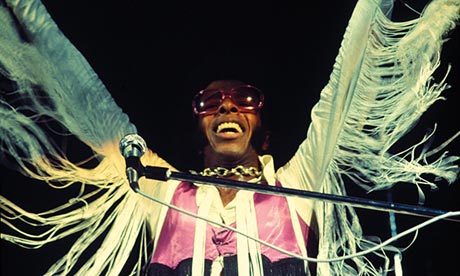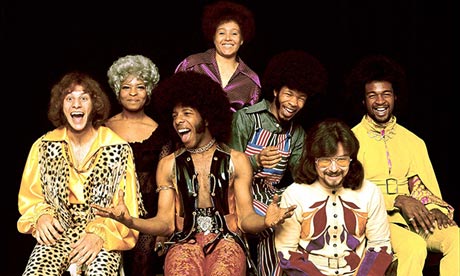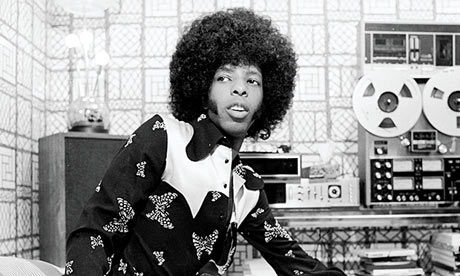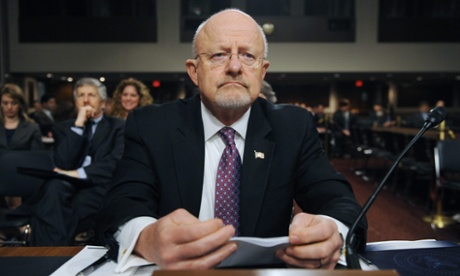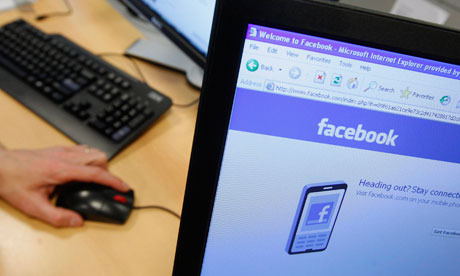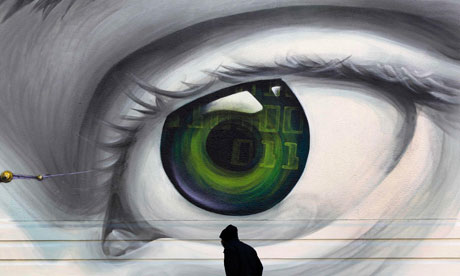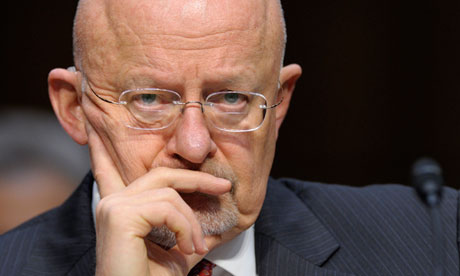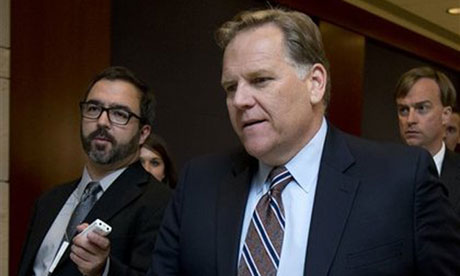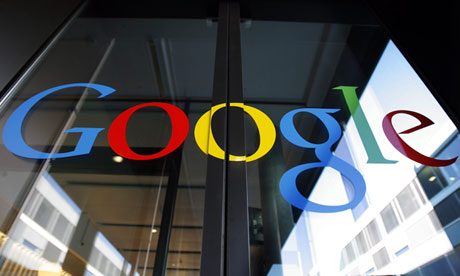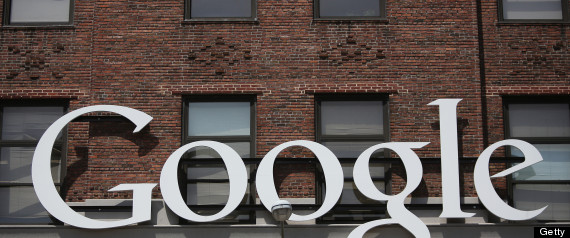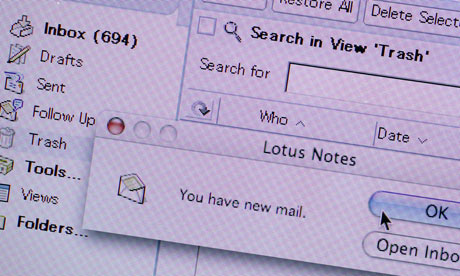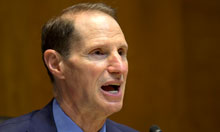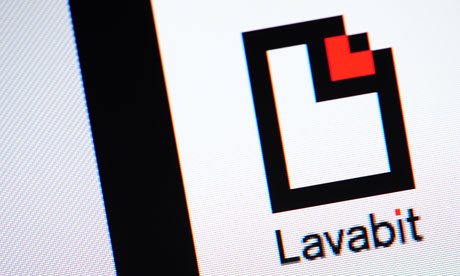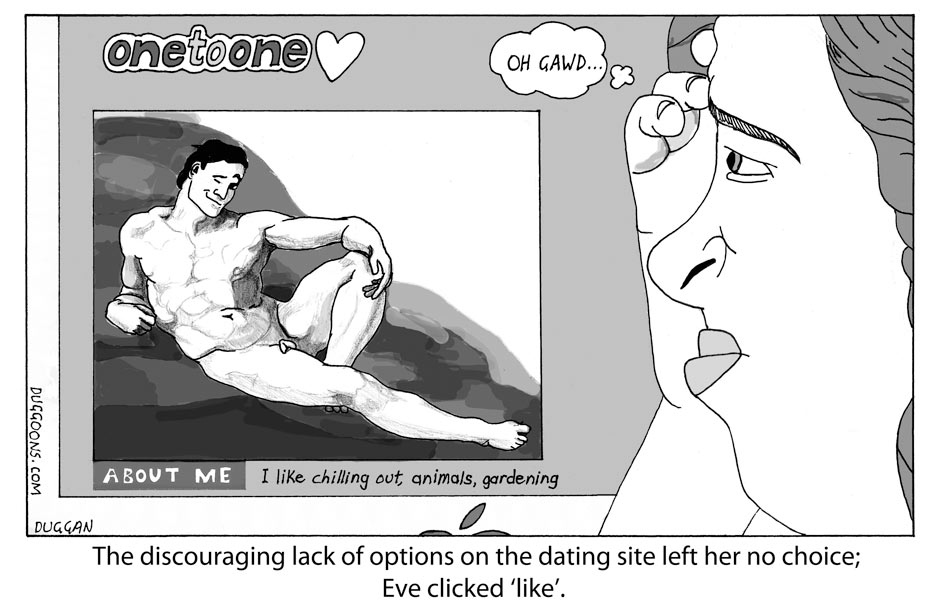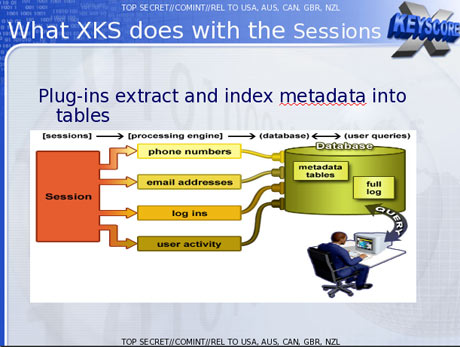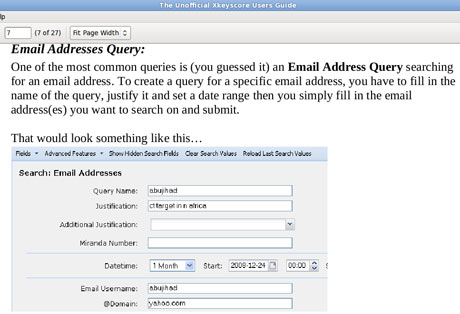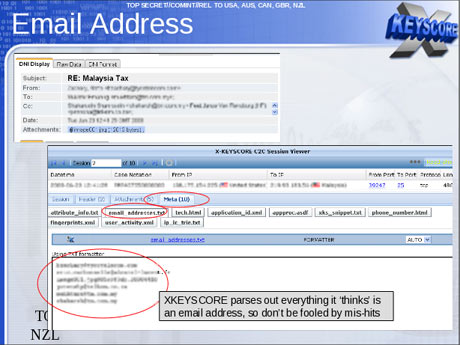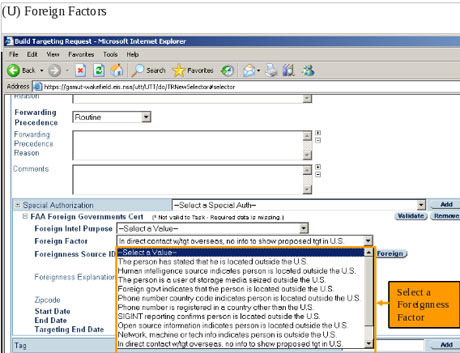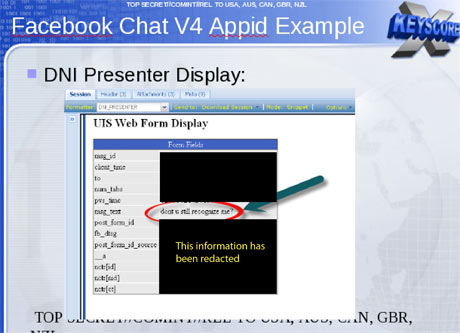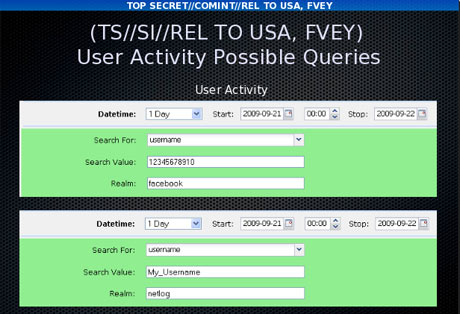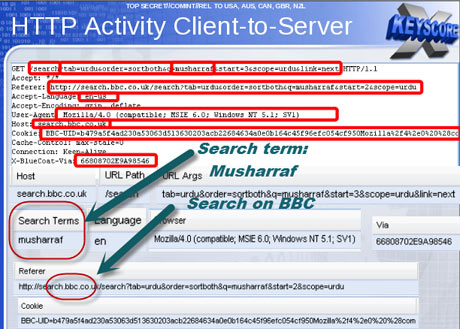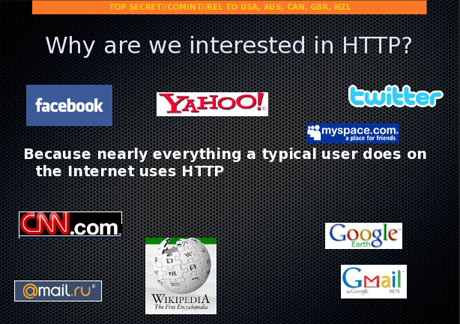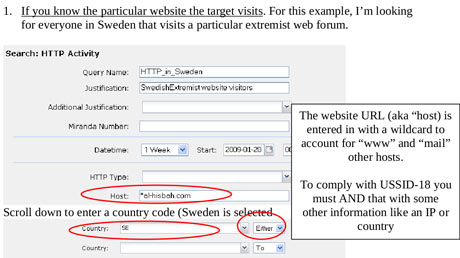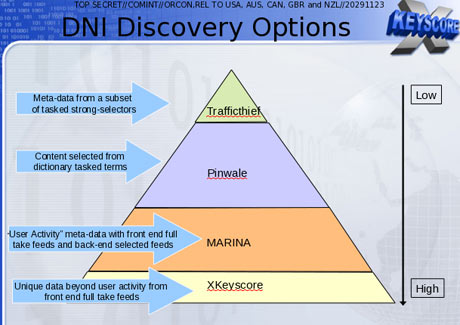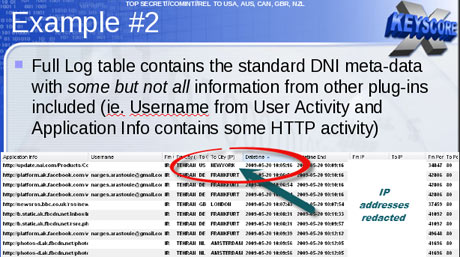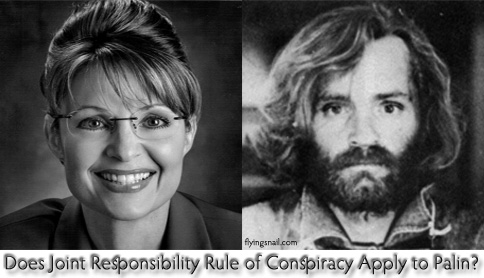
Tell-A-Vision = Why Not Try Love Again?
There is always choice the moment before something becomes perfect.
C. Spangler
TIL: It Was Ronald Reagan Who GASSED the KURDS
NOT Saddam Hussein
Showing Another Bush Administration Lie; like, Iraq's Alleged Weapons of Mass Destruction ... or ... ask War Criminal Donald Rumsfeld, who taught Hussein how to use them.
Read About it here: MASS GRAVES
Lies, Lies, Lies - BlackMustache.com
Notes from ~@~
Sly & The Family Stone ~ http://vimeo.com/67286232
Sly Stone:
'Albino musicians could neutralise all the racial problems'He was the musical genius who reinvented pop with the Family Stone – and threw it all away in a haze of drugs and paranoia. Now, at the age of 70, he tells Alexis Petridis in a remarkable interview about his planned comeback with an all-albino band
Alexis Petridis, The Guardian, Thursday 29 August 2013 12.59 EDT, Article Source
Sly Stone: 'Yes, I have regrets. I just can't think of one now.’ Photograph: Herb GreeneIt is a sweltering August evening and I am perched on the edge of a bouncy castle in the grounds of a child-friendly hotel near Newquay. I'm supposed to be on holiday with my wife and kids, but instead I'm listening to Sly Stone tell me about his new idea for a band, a band he claims will be "even stronger" than the Family Stone.
This is obviously quite a boast. Between 1967 and 1975, Sly and the Family Stone not only sold millions of records, they changed the face of pop music. They were America's first major racially integrated rock band, driven by a leader who seemed to have gone out of his way to recruit not just a mixture of black and white musicians, but the biggest misfits he could find: Cynthia Robinson, a female trumpet player in an age when women didn't play the trumpet in rock bands or indeed anywhere else; Jerry Martini, a long-haired, sandal-wearing hippy saxophonist, who says he'd been "an outcast" in school for loving R'n'B instead of Dave Brubeck. "I wanted people to look onstage and see the world and how the world can get along," says Stone today. "If they could see us, see we were having fun, it might make it easier for them to catch on."
Everything about Sly and the Family Stone was spectacular. They looked spectacular – a riot of afro hair, violet wigs, satin, tassles and sequined capes. On YouTube, you can see a remarkable clip of them from the Ed Sullivan Show in December 1968, playing a medley of their hits – Everyday People, Dance to the Music, You Can Make It If You Try, I Want to Take You Higher. At the climax of the performance, Sly and his sister Rose run from the stage and dance wildly in the audience, who are largely white, middle-aged and aghast at what's going on in their midst.
Sly Stone performing at Woodstock. Photograph: Lee MarshallThey sounded spectacular, too. Their fusion of soul, funk and psychedelia was so potent and groundbreaking and successful – between 1969 and 1970, they sold 8m albums – that even Motown was forced to change its approach in their wake: out went the label's trademark sound, in came records that sounded, well, more like Sly And The Family Stone. Even their demise was spectacular. No band seemed to embody the curdling of the utopian 60s counterculture dream into paranoia and bleak, joyless hedonism quite as starkly as Sly and the Family Stone.
Around the time of the Ed Sullivan performance, Stone relocated from the band's base in San Francisco to a mansion in Bel Air. He surrounded himself with guns, dangerous dogs and a coterie of personal assistants and bodyguards who were, at best, highly dubious and at worst actual mafiosi. He sank ever deeper into drug use – not just cocaine, but PCP – and developed a reputation for unreliability and erratic behaviour. He still managed two more incredible albums, 1971's There's a Riot Goin' On and 1973's Fresh, but band members began leaving – bassist Larry Graham allegedly fleeing in fear for his life after an altercation with some of Stone's hired goons – and Sly and the Family Stone split up. By the end of the decade, Stone was releasing albums whose titles seemed to both acknowledge his increasingly grim reputation and smack of desperation: Back on the Right Track; Heard Ya Missed Me – Well I'm Back!
It's a remarkable story for any band to live up to, but then Stone's new idea sounds pretty remarkable too. "You know what? I'm looking for albino musicians," he says. "My feeling about it is that it could neutralise all the different racial problems." At first I think I've misheard him, which is remarkably easy to do. At 70, his voice is raspy and slightly slurred, perhaps the result of decades of hard living, or maybe something to do with a bizarre accident some years ago, when he apparently fell off a cliff in Beverly Hills while eating a plate of food: he declined to be treated for the injuries to his neck, a decision that has left him in constant pain unless he hunches over, his chin on his chest. Coupled with a patchy mobile phone signal and a bad transatlantic line, I occasionally lose the thread of what he's saying entirely. But this time I've heard him loud and clear. "To me," he continues, "albinos are the most legitimate minority group of all. All races have albinos. If we all realise that we've all got albinos in our families, it's going to take away from the ridiculous racial tension, if you're black or you're white, blah blah blah. That's why I've been trying to look for albino musicians and organise a group of people that are going to be right. That's what I've been rehearsing for. People will see us, all of us together – a real family, an albino family. People will get happy when they see that! People," he says firmly, "have got to be happy for that."
It goes without saying that I never expected to discuss albinism with one of the most elusive, fascinating and mercurial figures in rock history while sitting on a bouncy castle outside a hotel in Newquay. In fact, I never expected to speak to the former Sylvester Stewart at all, even though he has a new release to promote. Not a new album. There hasn't been one of those since 1982, unless you count the desultory CD featuring remakes of his hits that he put out a few years ago on a small independent label. Instead, there's a lavishly-packaged four-CD retrospective called Higher!, which charts his musical career from its beginning as a local radio DJ turned budding record producer in the early 60s, right up to the mid-70s.
The Family: Errico, Rose, Sly, Cynthia Robinson, Freddie Stone, Jerry Martini and Larry Graham. Photograph: Bob Cato/Sony MusicThe original plan was that I would just speak to his sister Rose, who sounds every bit as cool and insouciant on the phone as she did 42 years ago singing Runnin' Away, a song about a doomed attempt to escape fate that she performed in a blank-eyed sing-song voice, disturbingly at odds with the lyrics. She talks vaguely about the band facing "their own personal challenges" in the early 70s. "Not really deep problems," she adds, airily. And I speak to, Robinson, Martini and drummer Greg Errico, who still tour together as the Family Stone. Between them, they tell tales about the early days, when not everyone they encountered was, as Robinson puts it, "into seeing different races having fun together": "one time, me and Jerry walked by a barber shop, Jerry with his long-haired hippy look, me with my Angela Davis afro, and they ran out the store with razors. We had to run! We hadn't even said anything to them!" But the most striking thing is the awe and reverence in which they hold their former bandleader. "He's like Superman, literally," offers Robinson. "He's got x-ray vision." "He affected my life second only to God," says Martini. "Why don't people try to love him for what he did? He had so much to offer the music business and the world in general. Why is everybody concentrated on drugs or this or that?"
When the record label intimated that Stone would be willing to talk, it still seemed highly unlikely. Stone, in effect, vanished from public view in the early 80s, only cropping up in the news when he was arrested for cocaine possession or missed a court date. There was a brief flicker of activity at the end of the last decade, when he began performing live again, appearing for a few songs during shows by bands featuring various permutations of the old Family Stone lineup, with decidedly mixed results. For every night when something of the old magic fleetingly sparked, there was a disaster like the 2010 Coachella appearance, which took place just after lurid reports appeared in the press suggesting Stone was impoverished and of no fixed abode, living in a camper van parked on a street in East LA. At Coachella, Stone lay on the stage, mumbled incoherently, launched into a rant about his former manager that subsequently occasioned a lawsuit and started and stopped songs apparently at random. "It wasn't a good experience," says Errico, who played that night. "He had convinced everybody … I mean, they were looking to put together a whole tour on the other side of a successful show and … you know …" He lets out a defeated sigh. "When you have an experience like that, it's like the dark side of it … the result of the chemicals and all that. It's taken its toll and it lives right in front of you there. You don't want to go there."
The negotiations to get Stone to the phone stretch on for weeks. By the time I finally receive an LA mobile number it's long past my original deadline and into my holiday – the only place I can find a halfway decent mobile signal is in the adventure playground at the rear of the hotel. But after 12 hours of getting through to his answerphone – "You called. Or did you? We'll call back," it announces, with no option to leave a message – Stone finally picks up. Alas, he doesn't seem terribly pleased to hear from me. "I don't give a fuck what you heard, I ain't telling you anything," he says. He'll only do the interview if he's paid. "You guys send me some money, fair's fair, I work. I don't give a fuck about anything." He puts the phone down, and that appears to be that.
Sly Stone in 1973. Photograph: Legacy Recordings/Sony Music ArchiveThe next day, however, I'm given the number of someone called Neal Austinson, who describes himself as Stone's archivist/road manager, the latter a job which sounds as challenging as you might expect. "I don't know if you've seen the film Get Him to the Greek," he laughs. "A lot of similarity there. It was like those guys had followed me around, you know."
Stone, he says, is in good health and "for the most part" clean of drugs – "he likes to smoke a little weed and maybe have a cocktail before he gets onstage, but he's 70 years old, he can't do what he used to do, no one can at that age. And you know, coke is a very expensive habit to maintain." He is still resident in a camper van, albeit out of choice. "When all those stories were being published about him, he had a beautiful home near Hollywood, but he wanted to live in the camper. He likes to be able to just keep moving. Like he says, if things get weird, then he just goes somewhere else where things aren't weird. He's not destitute. He doesn't have the fortune that you would like to think a rock star would have because too many things are in litigation right now. But he pretty much gets what he wants, he lives comfortably."
He tells me that Stone has "a thousand new songs on his hard drive" and "a lot of real interesting ideas, concepts. At one point, he wanted me to find some ninja chicks to act as a security force for him. Ninja chicks and clowns. He had this idea that he would like to musically tutor the children of royalty, because he feels that's where he could make some good money." More importantly, he manages to coax Stone to the phone, abetted by the fact that his record company now appears to have paid him to speak to me. Certainly, he's in a markedly better mood than the previous day, greeting me in an English accent ("to whom am I speaking?"), upbeat about everything from his mythic reputation – "God, yeah, there's all kinds of stories about me, but it doesn't bother me, it's interesting" – to his variety of ongoing lawsuits against former managers and business associates. "I don't care about that bullshit, man. Man, that's boring. I don't even need the money that people are suing people for. I just want my tools, so I can earn money. I'd rather have that than the result of a lawsuit."
Contrary to the impression you'd get from the cameraphone footage of his Coachella appearance, he is both lucid and wryly funny, if occasionally his version of events differs markedly from everyone else's. The move from San Francisco to the Bel Air mansion, which Errico had told me flatly was "the beginning of the end", was according to Stone: "really good … beautiful. There were a lot of musicians there. It was great." Still, he concedes, there were some problems. "People told Larry that I was going to kill him. That was so far away from my head, I don't know why people would say that. It was impossible for me to even think that. Maybe they meant it as a joke. He just got a little afraid, that's all. But he's a great bass player and I figured when he realises that I'm not going to kill him" – he lets out a wheezy laugh – "he'll be back."
He talks about the Family Stone's legendary appearance at Woodstock, where by all accounts they stole the show: coming onstage at 4am, luring the audience out of their sleeping bags and on to their feet. "It was scary. More and more people kept turning up. I didn't know where to go if I wanted to buy some food," he chuckles, "although there was a lot of people advertising which kid you could go to to buy acid. So I was scared. Hey, listen, Jimi Hendrix was there, all sorts of other people. I knew my place. Just to be around Jimi Hendrix … shit. I didn't want to be running my mouth off, too much talking. I hate that kind of shit. I just wanted to play the best we could, and that's what we did."
After Woodstock, he appeared to have it all. And then, inexplicably, he started to throw it all away. The issue wasn't that his music suddenly became noticeably less commercial, although it did. By 1971's There's a Riot Goin' On, he had systematically divested his sound of its bubbling exuberance and replaced it with something profoundly creepy: the music on it is incredible, but it's redolent of stoned listlessness and small-hours paranoia, of curtains drawn to shut out the dawn – not, he insists, as some kind of despairing social comment on the fading of the hippy dream, but because of his disillusionment with the music industry. "We were in showbusiness. Once you get a hit group and once you get hit records, there are a lot of people who want a part of that. And then you get the haters. It's like a book. It needed a new chapter." Uncommercial or not, There's a Riot Goin' On went straight to No1 in the Billboard Pop Albums chart.
Sly Stone performing at Coachella, 2010. Photograph: Charley GallayAlthough blessed with a vast audience devoted and open-minded enough to follow him down ever-more obscure musical paths, he seemed intent on alienating them, regardless. He started turning up to gigs late, or not at all, necessitating their cancellation with the audience already in the venue – in 1970, he missed 27 out of 80 shows – ruining the band's reputation in the process. Quite why is a matter of debate. Some people thought he was just suffering from a lethal combination of arrogance and being permanently out of his mind on drugs. Martini tells me that he thought Stone's behaviour was all somehow linked to the commercial failure of the band's 1967 debut album, A Whole New Thing, a notably different-sounding record to any of its successors: afterwards, his label insisted he came up with a straightforward hit, which he did, in the shape of Dance to the Music. "When he started, he started with his heart and his mind wide open and he got down right away by the powers that be in the music industry, and it kind of broke his heart. We had a lot of success, but I think it damaged Sly morally. It hurt him that he wasn't able to use his true genius to go in the direction that people like Herbie Hancock and Miles Davis did." But once again, Stone says otherwise. "Nah, I was trying to be too complex, too musical. I was trying to be Bob Dylan too. But you know, Dylan had the words and he just kept the music simple. He knew how to do that. But I'll tell you this, I knew how to do it after that album, didn't I? OK, I'll boogie down. All you've got to do is give them the music that they can hear and they can dance to, and that's what we did. Dance to the Music!"
Stone claims the missed shows weren't always his fault. The other members of the band were losing interest – "people get boyfriends and girlfriends, they start acting differently" – but "if you're the leader, you take the acclaim, you should take the blame". "Do I have any regrets?" he says. "Shit, yes, I have regrets." There's a long pause. "I just can't think of one now."
Anyway, he says, he wants to focus on the future. There's his project to recruit an albino backing band to think about. Austinson had seemed doubtful whether the thousand songs on his hard drive would ever see the light of day – "I don't think dealing with a record label and all those things are that appealing to him" – but Stone says otherwise: "I've got a few reasons why I've got to maintain stability. I've got into wanting people to hear my music. I've got something I want people to hear because I know they'll like it. They've gotta like it! The songs I've been writing are the sort of things you have to like."
I start to ask another question, but he interrupts me: "Have I talked to you enough now? I've got to go to the bathroom. You asked me about regrets," he says, with another wheezy laugh. "If I don't take a big shit now, I'll regret that." And with that, he's gone: perhaps the last of rock's great enigmatic geniuses, heading to the toilet with his mystery more or less intact.
A few days later, I speak to Neal Austinson again. He tells me that after the interview, Stone asked him to contact me again. They'd got on to the subject of his plan to become a music tutor to the children of royalty, which Stone seemed to think I might be able to assist him with. "He said, why don't you talk to that guy in England, see if he knows any royalty?" He laughs. "Just because you live over there! Sly Stone," he adds, perhaps a little unneccessarily, "he's quite the character."
ARPSN Seismic Heliplots ~ Seismic Activity
3.8-magnitude earthquake hits near The Geysers;
area residents describe quake as 'violent'
David Normal ~ Artist
Recent Works by David Normal
Made in Thailand II
The above painting, "Made in Thailand II", was recently commissioned by a collector in Australia. Evidently he had been following my work for awhile and was fond of a painting I had made about 10 years ago. I no longer have that painting in my possession, and so I offered to create a new version of it based on the same basic composition. The original piece was made while staying in Bangkok and waiting for a new passport to replace my old one that had worn out. At the time I was interested in developing my skill in working with transparent media towards the goal of executing paintings on silk, and so I had made a very loose, flowing, abstract composition with which I could experiment with using "liquid watercolors" (a kind of watercolor very similar to colored ink). See below:
Made in Thailand I
Re-making this piece was serendipitous for my current development since my interest has once again turned towards developing my skill in working with transparency. Indeed, it is a rotation to the same point in a circular trajectory since the goal is the same now as it was then: to create illuminated glowing works. Recently, for my show in New York, I created a set of small handpainted Illuminations that I have titled "Lightworks". These Lightworks while based on old sketches, have laid the technical foundation for more ambitious pieces of the same sort. This newest painting harkens back to an earlier style that I have actually long eschewed, however, feeling that "Made in Thailand II" was a successful work, I think that it points in the stylistic direction that larger Lightworks will take in the near future, and so the more natural, spontaneous, doodley style that I often indulge in my sketches may come to the fore in finished works. More news about this soon!
NSA surveillance program violates
the constitution, ACLU saysIn a detailed court motion filed Monday as part of an ongoing lawsuit against the NSA, ACLU says program has 'chilling effect'
Karen McVeigh in New York, theguardian.com, Tuesday 27 August 2013 15.31 EDT, Article Source
James Clapper, the US director of national intelligence, has been named in ACLU's
lawsuit. Photograph: Michael Reynolds/EPAThe National Security Agency's mass tracking and collection of Americans' phone call data violates the constitution, has a chilling effect on first amendment rights and should be halted, accord to a court motion filed by the American Civil Liberties Union on Monday.
In a detailed, legal critique of the NSA programme, the ACLU warned that such long-term surveillance "permits the government to assemble a richly detailed profile of every person living in the United States and to draw a comprehensive map of their associations with one another."
The motion is part of a lawsuit filed by the ACLU in June, one of several against the NSA following the Guardian's disclosures via whistleblower Edward Snowden, of the agency's mass surveillance of US citizens. Documents from Snowden revealed a secret Foreign Intelligence Surveillance Court order directing Verizon to give the NSA all call detail records or "metadata" relating to every domestic and international call for three months, in a court direction that is renewed on an ongoing basis.
It "allows surveillance that is essentially indefinite", the motion says.
The ACLU document is peppered with quotes from literary, academic and other sources, to illustrate the danger of mass surveillance by the government, including the writings of George Orwell and The Lives of Others, an award-winning movie about the monitoring of East Berlin by the Stazi by director Florian Henckel von Donnersmarck.
In statements after the programme was disclosed, intelligence and government officials have stressed that the NSA does not collect the contents of US calls, only the "metadata", such as the numbers called, the duration and timing of the calls. The information, they say, can only be interrogated if they suspect terrorism.
The legal motion argues that the NSA programme, which the agency says is used for counter-terrorism, has overstepped its bounds. Quoting Representative Jim Sensenbrenner, Republican of Wisconsin, the author of the Patriot Act in 2001, it says the NSA has "scoop[ed] up the entire ocean to . . . catch a fish."
The motion says: "The chilling effect of the mass call-tracking program is apparent: any person hoping to approach plaintiffs with proof of official misconduct would be understandably wary knowing that the government receives, almost in real-time, a record of every telephone call."
The ACLU's clients include prospective whistleblowers seeking legal counsel, and "government employees fearing reprisals for their political views". Phone calls, even the mere fact that a call was made, from such clients are "particularly sensitive or confidential", it said.
A declaration in support of the motion by Edward Felten, a professor of computer science and public affairs at Princeton, warns that "even basic inspection" of the metadata on the calls made in the US each day allows the government to pry into the population's most intimate secrets. They include, Felten wrote, the "rise and fall of intimate relationships" the diagnosis of a life-threatening disease or the identity of a prospective government whistleblower.
It can reveal, Felten wrote, "when we are awake and asleep; our religion, if a person regularly makes no calls on the Sabbath, or makes a large number of calls on Christmas Day; our work habits and our social aptitude; the number of friends we have; and even our civil and political affiliations".
Calls to certain helplines, or support groups, for instance sexual assault, domestic violence or abortion clinics are all tracked by the NSA, the motion says.
The NSA's mass collection of phone metadata was approved by the Fisa Court but the ACLU says that part of the basis for the court's approval, a Supreme Court ruling called Smith vs Maryland 1979, involved narrow surveillance directed at a specific criminal suspect over a limited time period.
It argues that nothing in Smith "remotely suggests that the constitution allows the government's mass collection of sensitive information about every single phone call made or received by residents of the United States over a period of seven years."
It says that the Supreme Court has "repeatedly recognised" that the government's surveillance and investigatory activities can infringe on associational rights protected by the first amendment.
The ACLU's lawsuit, filed on 11 June 2013, names James Clapper, the director of intelligence; Keith Alexander, the NSA director; Chuck Hagel, the defence secretary; Eric Holder; the attorney general and Robert Mueller, director of the Federal Bureau of Investigation. It says that the NSA's ongoing tracking of their phone calls exceeds statutory authority and violates the first and fourth amendments.
Eminem - Mosh Video ~ http://vimeo.com/27790825 ~ http://blackmustache.com/Facebook report:
governments asked for data on 38,000 users this yearFirst report of its kind reveals more than half of government requests for user data in first half of 2013 came from the US
Dominic Rushe in New York, theguardian.com, Tuesday 27 August 2013 12.16 EDT, Article Source
Facebook and its peers have been under intense scrutiny in the wake of the NSA
revelations. Photograph: Thierry Roge/ReutersGovernment agencies around the world demanded access to the information of over 38,000 Facebook users in the first half of this year, and more than half the orders came from the United States, the company said on Tuesday.
Facebook's first "global government requests report" covers the first six months of 2013, ending 30 June. It comes as the social network giant and its peers are coming under intense scrutiny following revelations about their co-operation with the National Security Agency's mass surveillance of US and foreign citizens.
"Transparency and trust are core values at Facebook. We strive to embody them in all aspects of our services, including our approach to responding to government data requests," Colin Stretch, Facebook general counsel, said in a blogpost. "We want to make sure that the people who use our service understand the nature and extent of the requests we receive and the strict policies and processes we have in place to handle them."
US authorities made 11,000-12,000 requests for information on 20,000-21,000 individuals over the six months. The company complied in 79% of cases. Facebook said it had to give a range for the US figures in order to give an indication of "all criminal and national security requests to the maximum extent permitted by law".
The figures released by Facebook give no detail on the types of requests received or of what type of information the company handed over. Facebook, along with Google and others, is currently pressing Congress to be allowed to give greater detail the number of requests it receives from the US authorities. The NSA has the the authority to demand data about communications with non-US citizens without specific warrants and gags companies from disclosing even the most basic details of those cases.
"We continue to push the United States government to allow more transparency regarding these requests, including specific numbers and types of national security-related requests. We will publish updated information for the United States as soon as we obtain legal authorisation to do so," said Facebook.
"As we have made clear in recent weeks, we have stringent processes in place to handle all government data requests. We believe this process protects the data of the people who use our service, and requires governments to meet a very high legal bar with each individual request in order to receive any information about any of our users," said Stretch.
It is not clear from Facebook's report whether the US figures take into account collection of communications under section 702 of the Fisa Amendments Act, which allows the NSA to target non-US persons without an individual warrant. In June, the Guardian revealed that this was done via the agency's Prism collection program with NSA documents claiming that Facebook had been a corporate partner since 3 June 2009.
Under the law only one end of the communications needs to be foreign, meaning that US persons' communications can be collected if they are in correspondence with a foreign target. And it has also emerged that the NSA inadvertently sweeps up large amounts of purely domestic US communications in the course of its foreign intelligence operations.
Facebook, and Twitter, have become organising platforms for activists around the world. The figures show Facebook pushed back against requests from governments in both Egypt and Turkey. Egypt made eight requests for information on 11 account holders over the six months and Facebook did not comply with any of them in that period.
In Turkey, where prime minister Recep Tayyip Erdogan called social media "the worst menace to society", authorities made 96 requests for information on 170 account holders. Facebook complied in 47% of cases over the time period.
"We fight many of these requests, pushing back when we find legal deficiencies and narrowing the scope of overly broad or vague requests," Stretch said. "When we are required to comply with a particular request, we frequently share only basic user information, such as name."
India made the next highest number of requests for information, 3,245 requests on 4,144 users. Facebook complied in 50% of cases. In the UK authorities asked for details on 2,337 users and Facebook complied in 68% of cases.
Ducked and Covered: A Survival Guide to the Post Apocalypse ~ http://vimeo.com/8149690
Lavabit founder:
'My own tax dollars are being used to spy on me'Since shuttering his email service, which was used by NSA whistleblower Edward Snowden, Ladar Levison has been stuck in a Kafkaesque legal battle – and that's about all he can say
Dominic Rushe, theguardian.com, Thursday 22 August 2013 10.04 EDT, Article Source
Ladar Levison cannot comment on specifics of what made him so uncomfortable
that he closed his business. Photograph: guardian.co.ukThe Obama administration has created a surveillance state on a scale not seen since senator Joe McCarthy's infamous 1950s crackdown on suspected communists, according to the tech executive caught up in crossfire between the NSA and whistleblower Edward Snowden.
"We are entering a time of state-sponsored intrusion into our privacy that we haven't seen since the McCarthy era. And it's on a much broader scale," Ladar Levison, founder of Lavabit, told the Guardian. The email service was used by Snowden and is now at the center of a potentially historic legal battle over privacy rights in the digital age.
Levison closed down his service this month, posting a message about a government investigation that would force him to "become complicit in crimes against the American people" were he to stay in business. The 32-year-old is now stuck in a Kafkaesque universe where he is not allowed to talk about what is going on, nor is he allowed to talk about what he's not allowed to talk about without facing charges of contempt of court.
It appears that Levison – who would not confirm this – has received a national security letter (NSL), a legal attempt to force him to hand over any and all data his company has so that the US authorities can track Snowden and anyone he communicated with. The fact that he closed the service rather than comply may well have opened him up to other legal challenges – about which he also can not comment.
What he will say is that he is locked in a legal battle he hopes one day will finally make it clear what the US government can and can not legally demand from companies. "The information technology sector of our country deserves a legislative mandate that will allow us to provide private and secure services so our customers, both here and abroad, don't feel they are being used as listening posts for an American surveillance network," he says.
And in the meantime what he will not do is stay silent – within legal limits. "I will stand on my soapbox and shout and shout as loudly as I can for as long as people will listen. My biggest fear is that the sacrifice of my business will have been in vain. My greatest hope is that same sacrifice will result in a positive change," he says, words that closely echo Snowden's own feelings about becoming a whistleblower.
Levison first heard of Snowden when he revealed himself in the Guardian in June. The first he knew about Lavabit's involvement was when Snowden used a lavabit.com account to announce a press conference at Moscow's airport, where he was left in limbo following his flight from Hong Kong.
"It's not my place to decide whether what Snowden did is right or wrong," said Levison. "I understand the need for secrecy. I understand that the government needs to keep the names of people they are currently investigating and doing surveillance on secret. I am wholly opposed, and find it contrary to our way of life, for the government to keep the methods that they use to conduct that surveillance a national secret. What they are really doing is using that secrecy to hide un-American actions from the general public," he says.
The extent of government surveillance illustrated by Snowden's leaks shows that the Obama administration is willing "to sacrifice the privacy of the many so they can conduct surveillance on the few", Levison said.
As his legal woes mounted he and his lawyer, Virginia-based Jesse Binnall, set up a fund in the hope of raising some cash. "If there's one thing the government has it's no shortage of lawyers. My own tax dollars are being used to spy on me," he says. "If you took all the people we currently have employed as peeping toms and turned them into school teachers, we'd have a much smarter country," he said.
Levison said he is overwhelmed by the support he has received. The fund already has $140,000 – most of it in $5 and $10 donations.
"Mainstream America is starting to realise just how easy it is for their government to spy on them. And more importantly they are realising that their government is spying on them." The extent of all this surveillance would have a "chilling effect on democracy", he said.
Sitting in an office near his Dallas home, Levison looks by turns angry and determined. His dog Princess plays at his feet, begging treats. We go on and off the record, as he constantly attempts to parse what he can and cannot say.
Levison is not an easy man to get hold of. His phone rings off the hook, he doesn't answer it unless he knows the number, nor does he listen to voicemail. He has no email now that his own service is shut down and relies on texts or Facebook to stay in touch.
After the NSA revelations and what he has been through he says: "I'm not sure I trust any electronic communication that involves any commercial service," he says. Is it very frustrating? I ask. "I'm not sure I am allowed to say," he replies.
Lavabit was originally designed as "email by geeks for geeks", says Levison. After university he bought the name Nerdshack.com and was looking to do something with it. Email seemed like a good bet. "I wasn't thinking about security at all," he says. What eventually became Lavabit was a service aimed at tech-savvy, heavy email users – people exchanging 100-plus messages a day. Then came the Patriot Act and Levison decided he could – and should – offer more to his clients.
The Patriot Act was introduced in the wake of 9/11, handing new powers to the US authorities to gather information. "All of a sudden we felt vulnerable. We were willing to sacrifice basic freedoms. Like the freedom to communicate, to associate, for an enhanced feeling of security," said Levison.
Obama was a critic of the act before his election but Levison believes the government's willingness to push that authority has only expanded under his presidency. "What we have seen in recent years is their willingness to use those laws in ways personally I consider to be unconstitutional, unethical and immoral," he says.
The act led Levison to make a number of "very conscious decisions". He would not log or collect any information that was not a technical necessity. No names, addresses, no mobile number, no alternative emails. "I didn't need to know that," he says. "I was removing myself from the equation." But he still had his clients' emails. So Lavabit offered a system that allowed users to encrypt their emails in a way that they could only be read by someone with a password key – a key Levison did not keep.
The idea was to protect people's emails from phishers, scammers and unwanted intrusions. He finds it difficult to understand why people think there is something nefarious about using encryption. "We use encryption every day to protect information. Encryption is effectively part of our everyday life," he says. "It's that little lock you see in your browser everyday. Everytime you go to the bank or visit PayPal."
The US authorities did ask him on a couple dozen occasions to hand over information on certain users, and he did. "I never intended the service to be anonymous. There are things that I could have done that would have catered to criminals that I would not do," he said. "I was always comfortable turning over what I had available."
Levison cannot comment on specifics of what made him so uncomfortable this time that he closed his business but it was clearly a difficult decision. "I walked away from 10 years of my life, tens of thousands of man hours that I had yet to benefit from," he says. "I had to choose whether or not to compromise my ethics and my moral code to stay in business or do what I thought was right and shut down the business." As the NSA documents have shown, other larger companies have faced similar dilemmas and, often after legal battles, acquiesced and cooperated with the authorities.
"If it's illegal to offer a private way to communicate to Americans, I didn't want to remain in the email business," he says. "I think our constitution guarantees our right to communicate privately without fear of government surveillance. But the fact is Congress has passed laws that say otherwise."
Lavabit's closure has inspired others to follow suit. Silent Circle, another encrypted communications service, shut down and deleted its email program shortly after Lavabit. Founder Phil Zimmermann, who created the widely used Pretty Good Privacy (PGP) data encryption and decryption computer program, said he had seen "the writing on the wall".
Pamela Jones (aka PJ) closed her award-winning blog Groklaw this week citing Levison's decision to shutter Lavabit. "The owner of Lavabit tells us that he's stopped using email and if we knew what he knew, we'd stop too," she wrote in a final post. "I'm not a political person, by choice, and I must say, researching the latest developments convinced me of one thing – I am right to avoid it," she wrote. "What I do know is it's not possible to be fully human if you are being surveilled 24/7 … I hope that makes it clear why I can't continue. There is now no shield from forced exposure."
Karen Greenberg, director of the Center on National Security at Fordham Law School, said Levison along with Snowden and others were at the forefront of a debate over privacy that had been simmering since 9/11 and was now coming to a head. "This is a very dangerous moment for these individuals," she said.
There are numerous legal issues here – not just about encryption but about also about a person's right to publicly defend themselves, she said.
"I don't think legal precedent can tell us what is going to happen here. We are in a new conversation about how broadly national security letters can be used," she said. "What this illustrates is the way in which secrecy absolutely chills the conversation. He [Levison] is already treading on thin ice, if he talks at all he could be up on charges of contempt."
"How many individuals are going to have to – what they would see as – martyr themselves? But it's not just renegade kids. Facebook, Google and others have pushed back on national security letters too."
She said she expected the fight would now move to Congress where there is already some push back against the powers of the NSA and the scale of the US's surveillance operations. And from there to the legal system – perhaps one day ending up in the supreme court. The legal system is already showing some signs of rebellion. In a ruling released in March US district judge Susan Illston said that NSLs suffer from "significant constitutional defects" and violate the first amendment because of the way they effectively gag companies that receive them.
"There is a lot of sentiment among Americans that they know they are being surveilled and what does it matter. But hounding people is going to have repercussions," said Greenberg. "Knowing about Prism and the NSA's violations will sink in over time. Americans see privacy as one of their rights. What does it mean if you can't encrypt anything? It's a huge philosophical question with very large legal implications."
As for Levison he is learning to live life without email So far it's been difficult but not impossible. One day he hopes, when his legal woes are behind him: "I'll get my inbox back."
YES WE SCAN ~ WE ARE WATCHING YOU == Image: Marcoltht/Tumblr via FredJustice Is Literally Blind
Bush War Crime Administration
THEY RETURNED
THEY Took Your Jobs
THEY Took Your Money
THEY Took Your Homes
THEY Started Illegal Wars
THEY Destroyed the Economy
THEY had Children Sodomized
THEY Murdered Women and Babies
THEY Put Martha Stewart and Tommy Chong In Jail
THEY Supported Israel's Murder of US Navy aboard the USS Liberty
THEY Held the Teachers Accountable
THEY Committed the Real Crimes,
Brought Disgrace to The People of the United States,
were never brought up on charges, thanks to Obama,
and WALK FREE TODAY !!!(otoh) With Joe McCarthy Wannabe == Obama...
Expose War Crimes and Get Sentenced to 35 Years
Nobody Listens the First Time Around
None of the Above
Should Be A Choice On Voter Ballots
http://www.nobodyforpresident.org/
So the innocent have nothing to fear?
After David Miranda we now know where this leadsThe destructive power of state snooping is on display for all to see. The press must not yield to this intimidation
Simon Jenkins, The Guardian, Tuesday 20 August 2013 15.30 EDT, Article Source
'But it remains worrying that many otherwise liberal-minded Britons seem reluctant to take seriously
the abuses revealed in the nature and growth of state surveillance.' Photograph: Yannis Behrakis/ReutersYou've had your fun: now we want the stuff back. With these words the British government embarked on the most bizarre act of state censorship of the internet age. In a Guardian basement, officials from GCHQ gazed with satisfaction on a pile of mangled hard drives like so many book burners sent by the Spanish Inquisition. They were unmoved by the fact that copies of the drives were lodged round the globe. They wanted their symbolic auto-da-fe. Had the Guardian refused this ritual they said they would have obtained a search and destroy order from a compliant British court.
Two great forces are now in fierce but unresolved contention. The material revealed by Edward Snowden through the Guardian and the Washington Post is of a wholly different order from WikiLeaks and other recent whistle-blowing incidents. It indicates not just that the modern state is gathering, storing and processing for its own ends electronic communication from around the world; far more serious, it reveals that this power has so corrupted those wielding it as to put them beyond effective democratic control. It was not the scope of NSA surveillance that led to Snowden's defection. It was hearing his boss lie to Congress about it for hours on end.
Last week in Washington, Congressional investigators discovered that the America's foreign intelligence surveillance court, a body set up specifically to oversee the NSA, had itself been defied by the agency "thousands of times". It was victim to "a culture of misinformation" as orders to destroy intercepts, emails and files were simply disregarded; an intelligence community that seems neither intelligent nor a community commanding a global empire that could suborn the world's largest corporations, draw up targets for drone assassination, blackmail US Muslims into becoming spies and haul passengers off planes.
Yet like all empires, this one has bred its own antibodies. The American (or Anglo-American?) surveillance industry has grown so big by exploiting laws to combat terrorism that it is as impossible to manage internally as it is to control externally. It cannot sustain its own security. Some two million people were reported to have had access to the WikiLeaks material disseminated by Bradley Manning from his Baghdad cell. Snowden himself was a mere employee of a subcontractor to the NSA, yet had full access to its data. The thousands, millions, billions of messages now being devoured daily by US data storage centres may be beyond the dreams of Space Odyssey's HAL 9000. But even HAL proved vulnerable to human morality. Manning and Snowden cannot have been the only US officials to have pondered blowing a whistle on data abuse. There must be hundreds more waiting in the wings – and always will be.
There is clearly a case for prior censorship of some matters of national security. A state secret once revealed cannot be later rectified by a mere denial. Yet the parliamentary and legal institutions for deciding these secrets are plainly no longer fit for purpose. They are treated by the services they supposedly supervise with falsehoods and contempt. In America, the constitution protects the press from pre-publication censorship, leaving those who reveal state secrets to the mercy of the courts and the judgment of public debate – hence the Putinesque treatment of Manning and Snowden. But at least Congress has put the US director of national intelligence, James Clapper, under severe pressure. Even President Barack Obama has welcomed the debate and accepted that the Patriot Act may need revision.
In Britain, there has been no such response. GCHQ could boast to its American counterpart of its "light oversight regime compared to the US". Parliamentary and legal control is a charade, a patsy of the secrecy lobby. The press, normally robust in its treatment of politicians, seems cowed by a regime of informal notification of "defence sensitivity". This D-Notice system used to be confined to cases where the police felt lives to be at risk in current operations. In the case of Snowden the D-Notice has been used to warn editors off publishing material potentially embarrassing to politicians and the security services under the spurious claim that it "might give comfort to terrorists".
Most of the British press (though not the BBC, to its credit) has clearly felt inhibited. As with the "deterrent" smashing of Guardian hard drives and the harassing of David Miranda at Heathrow, a regime of prior restraint has been instigated in Britain whose apparent purpose seems to be simply to show off the security services as macho to their American friends.
Those who question the primacy of the "mainstream" media in the digital age should note that it has been two traditional newspapers, in London and Washington, that have researched, co-ordinated and edited the Snowden revelations. They have even held back material that the NSA and GCHQ had proved unable to protect. No blog, Twitter or Facebook campaign has the resources or the clout to confront the power of the state.
There is no conceivable way copies of the Snowden revelations seized this week at Heathrow could aid terrorism or "threaten the security of the British state" – as charged today by Mark Pritchard, an MP on the parliamentary committee on national security strategy. When the supposed monitors of the secret services merely parrot their jargon against press freedom, we should know this regime is not up to its job.
The war between state power and those holding it to account needs constant refreshment. As Snowden shows, the whistleblowers and hacktivists can win the occasional skirmish. But it remains worrying that many otherwise liberal-minded Britons seem reluctant to take seriously the abuses revealed in the nature and growth of state surveillance. The arrogance of this abuse is now widespread. The same police force that harassed Miranda for nine hours at Heathrow is the one recently revealed as using surveillance to blackmail Lawrence family supporters and draw up lists of trouble-makers to hand over to private contractors. We can see where this leads.
I hesitate to draw parallels with history, but I wonder how those now running the surveillance state – and their appeasers – would have behaved under the totalitarian regimes of the 20th century. We hear today so many phrases we have heard before. The innocent have nothing to fear. Our critics merely comfort the enemy. You cannot be too safe. Loyalty is all. As one official said in wielding his legal stick over the Guardian: "You have had your debate. There's no need to write any more."
Yes, there bloody well is.
Why I love … Addams Family Values' Thanksgiving play
Wednesday's turn as a vengeful Native American at summer camp is a gloriously funny assault on sterile conformity, says Adam Boult, in our series on personal cinematic passions
Posted by Adam Boult, Tuesday 20 August 2013 07.27 EDT, theguardian.com, Article Source
Don't mess ... Christina Ricci as Wednesday Addams in Addams Family Values.
Photograph: THE RONALD GRANT ARCHIVEIt's a bad idea to mess with Wednesday Addams.
In the second (and best) Addams Family film, Wednesday and her brother Pugsley are confronted with their worst nightmare; dispatched to a summer camp; they're thrust into a perky, peppy regime where team spirit, a fixed smile and a healthy, happy outlook are more or less mandatory.
Insufferably cheery camp owners Gary and Becky are initially thwarted in their attempts to get the Addams kids to play ball – but they grind their captives down with a spell in the "Harmony Hut," where they're forced to watch upbeat family films for hours on end.
On their release, Wednesday is a changed person. Where before she was sombre and malevolent, now she breaks into an actual smile. Yes, of course they'll behave from now on. Wednesday, Pugsley, and fellow outcast Joel agree to take roles in the camp play – a musical production of the first Thanksgiving, with Wednesday playing Pocahontas.
Watch the Addams Family Values Thanksgiving sceneAnd all seems well at summer camp. The audience, full of smiling, WASP parents, look on adoringly as their perfectly turned out kids, all blond hair, straight teeth and good prospects, act the part of the pilgrims, generously deigning to invite the Native Americans to join their Thanksgiving feast.
On comes Wednesday, leading a band of social outcasts – but soon her fake smile fades. She abandons her lines and starts speaking truth to power:
"Years from now my people will be forced to live in mobile homes on reservations. Your people will wear cardigans, and drink highballs. We will sell our bracelets by the roadsides, you will play golf, and enjoy hot hors d'oeuvres. My people will have pain and degradation … And for all these reasons I have decided to scalp you and burn your village to the ground." And that's precisely what Wednesday and her fellow Native Americans set about doing.
You suspect that screenwriter Paul Rudnick was settling some old scores with this scene – a few painful summer camp memories must be addressed as the unpopular kids raze the camp and send those WASPs screaming back to the safety of their big cars, proud smiles well and truly wiped off their faces.
It's an entirely satisfying moment of outsider-wish-fulfilment. Wednesday speaks not just for displaced native Americans, but for anyone who's ever felt like an outcast, who's been unwilling or unable to join in with what's normal or popular. It's a brutal assault on the forces of sterile conformity, a glorious "fuck you" to the entitled few, and, as if that wasn't enough, it's also funny as hell.
- Addams Family Values
- Production year: 1993
- Country: USA
- Cert (UK): PG
- Runtime: 95 mins
- Directors: Barry Sonnenfeld
- Cast: Anjelica Huston, Christina Ricci, Christopher Lloyd, Raul Julia
More from the Why I Love ... series
• Why we love ... Jon Voight's shifty eyes ... Dumbo's Pink Elephants ... Human Traffic's opening titles ... Fight Club's first fight
David Miranda, schedule 7 and the
danger that all reporters now faceAs the events in a Heathrow transit lounge – and the Guardian offices – have shown, the threat to journalism is real and growing
Alan Rusbridger, The Guardian, Monday 19 August 2013 22.30 BST, Article Source
Glenn Greenwald, left, with David Miranda, who was held for nine hours at Heathrow
under schedule 7 of Britain's terror laws. Photograph: Ricardo Moraes/ReutersIn a private viewing cinema in Soho last week I caught myself letting fly with a four-letter expletive at Bill Keller, the former executive editor of the New York Times. It was a confusing moment. The man who was pretending to be me – thanking Keller for "not giving a shit" – used to be Malcolm Tucker, a foul-mouthed Scottish spin doctor who will soon be a 1,000-year-old time lord. And Keller will correct me, but I don't remember ever swearing at him. I do remember saying something to the effect of "we have the thumb drive, you have the first amendment".
The fictional moment occurs at the beginning of the DreamWorks film about WikiLeaks, The Fifth Estate, due for release next month. Peter Capaldi is, I can report, a very plausible Guardian editor.
This real-life exchange with Keller happened just after we took possession of the first tranche of WikiLeaks documents in 2010. I strongly suspected that our ability to research and publish anything to do with this trove of secret material would be severely constrained in the UK. America, for all its own problems with media laws and whistleblowers, at least has press freedom enshrined in a written constitution. It is also, I hope, unthinkable that any US government would attempt prior restraint against a news organisation planning to publish material that informed an important public debate, however troublesome or embarrassing.
On Sunday morning David Miranda, the partner of Guardian columnist Glenn Greenwald, was detained as he was passing through Heathrow airport on his way back to Rio de Janeiro, where the couple live. Greenwald is the reporter who has broken most of the stories about state surveillance based on the leaks from the former NSA contractor Edward Snowden. Greenwald's work has undoubtedly been troublesome and embarrassing for western governments. But, as the debate in America and Europe has shown, there is considerable public interest in what his stories have revealed about the right balance between security, civil liberties, freedom of speech and privacy. He has raised acutely disturbing questions about the oversight of intelligence; about the use of closed courts; about the cosy and secret relationship between government and vast corporations; and about the extent to which millions of citizens now routinely have their communications intercepted, collected, analysed and stored.
In this work he is regularly helped by David Miranda. Miranda is not a journalist, but he still plays a valuable role in helping his partner do his journalistic work. Greenwald has his plate full reading and analysing the Snowden material, writing, and handling media and social media requests from around the world. He can certainly use this back-up. That work is immensely complicated by the certainty that it would be highly unadvisable for Greenwald (or any other journalist) to regard any electronic means of communication as safe. The Guardian's work on the Snowden story has involved many individuals taking a huge number of flights in order to have face-to-face meetings. Not good for the environment, but increasingly the only way to operate. Soon we will be back to pen and paper.
Miranda was held for nine hours under schedule 7 of the UK's terror laws, which give enormous discretion to stop, search and question people who have no connection with "terror", as ordinarily understood. Suspects have no right to legal representation and may have their property confiscated for up to seven days. Under this measure – uniquely crafted for ports and airport transit areas – there are none of the checks and balances that apply once someone is in Britain proper. There is no need to arrest or charge anyone and there is no protection for journalists or their material. A transit lounge in Heathrow is a dangerous place to be.
Miranda's professional status – much hand-wringing about whether or not he's a proper "journalist" – is largely irrelevant in these circumstances. Increasingly, the question about who deserves protection should be less "is this a journalist?" than "is the publication of this material in the public interest?"
The detention of Miranda has rightly caused international dismay because it feeds into a perception that the US and UK governments – while claiming to welcome the debate around state surveillance started by Snowden – are also intent on stemming the tide of leaks and on pursuing the whistleblower with a vengeance. That perception is right. Here follows a little background on the considerable obstacles being placed in the way of informing the public about what the intelligence agencies, governments and corporations are up to.
A little over two months ago I was contacted by a very senior government official claiming to represent the views of the prime minister. There followed two meetings in which he demanded the return or destruction of all the material we were working on. The tone was steely, if cordial, but there was an implicit threat that others within government and Whitehall favoured a far more draconian approach.
The mood toughened just over a month ago, when I received a phone call from the centre of government telling me: "You've had your fun. Now we want the stuff back." There followed further meetings with shadowy Whitehall figures. The demand was the same: hand the Snowden material back or destroy it. I explained that we could not research and report on this subject if we complied with this request. The man from Whitehall looked mystified. "You've had your debate. There's no need to write any more."
During one of these meetings I asked directly whether the government would move to close down the Guardian's reporting through a legal route – by going to court to force the surrender of the material on which we were working. The official confirmed that, in the absence of handover or destruction, this was indeed the government's intention. Prior restraint, near impossible in the US, was now explicitly and imminently on the table in the UK. But my experience over WikiLeaks – the thumb drive and the first amendment – had already prepared me for this moment. I explained to the man from Whitehall about the nature of international collaborations and the way in which, these days, media organisations could take advantage of the most permissive legal environments. Bluntly, we did not have to do our reporting from London. Already most of the NSA stories were being reported and edited out of New York. And had it occurred to him that Greenwald lived in Brazil?
The man was unmoved. And so one of the more bizarre moments in the Guardian's long history occurred – with two GCHQ security experts overseeing the destruction of hard drives in the Guardian's basement just to make sure there was nothing in the mangled bits of metal which could possibly be of any interest to passing Chinese agents. "We can call off the black helicopters," joked one as we swept up the remains of a MacBook Pro.
Whitehall was satisfied, but it felt like a peculiarly pointless piece of symbolism that understood nothing about the digital age. We will continue to do patient, painstaking reporting on the Snowden documents, we just won't do it in London. The seizure of Miranda's laptop, phones, hard drives and camera will similarly have no effect on Greenwald's work.
The state that is building such a formidable apparatus of surveillance will do its best to prevent journalists from reporting on it. Most journalists can see that. But I wonder how many have truly understood the absolute threat to journalism implicit in the idea of total surveillance, when or if it comes – and, increasingly, it looks like "when".
We are not there yet, but it may not be long before it will be impossible for journalists to have confidential sources. Most reporting – indeed, most human life in 2013 – leaves too much of a digital fingerprint. Those colleagues who denigrate Snowden or say reporters should trust the state to know best (many of them in the UK, oddly, on the right) may one day have a cruel awakening. One day it will be their reporting, their cause, under attack. But at least reporters now know to stay away from Heathrow transit lounges.
• Alan Rusbridger has replied to several comments in the thread below. Here are a selection of his answers:
Lionel said:
I frankly am not clear on the extent to which suspects come into this matter. It has been indicated several times that police at Heathrow can operate without being suspicious. When exactly are they expected to operate?
Alan Rusbridger replied:
You're right. In fact, the point of Schedule 7 is that they are supposedly not "suspects". Because then the authorities would have to arrest them and they would have many rights they don't have as, er, non-suspects.
StopGMO said:
Free speech must be maintained for ALL of us, not just 'reporters', so while we care about this abuse, make sure you are not just supporting 'reporters' rights, but speak up for your OWN. Do not let the greasy UN get it's hands on the internet, and speak up for your rights, and the rights of reporters to furnish the truth. All two of the reporters who still bother to do that.
Alan Rusbridger replied:
You're right of course: it's not just about reporters. But it would be a good start if more journalists saw what was potentially at risk here...
AlanC said:
If you meekly give into their demands without insisting that they take you to court then you've as good as admitted that they can do whatever they like as far as the UK press is concerned. Now if you had made that story a front page feature the day after it happened then you might have a point but, as far as I can remember, there was nary a cheep.
Alan Rusbridger replied:
Play out the scenario for me in which fighting this case in court would have enabled us to do a better job of reporting the Snowden documents. I'm not sure I quite see it...
Crowfoot said:
Ok Alan, There's a tide of us ordinary folks out here, shocked witless, cross, affronted by the degree to which basic democratic rights have been usurped, and fully support The Guardian's David stance against Goliath. But what does one proactively do with one's anger? How can we help? How to galvanise the public's response?
Alan Rusbridger replied:
Keeping reading the Guardian... and I suppose you could support Snowden's defence fund.
Iskra1903 said:
Is it possible, Mr Rusbridger, for you to acknowledge that the people who held Mr Miranda may have done so with the aim of preventing their efforts to prevent a terrorist attack being compromised? They may well have transgressed their legal powers, and their actions (and the governance over those actions) does indeed need to be scrutinised. But your article only permits the conclusion that these people are acting in bad faith, and abusing their powers in an Orwellian fashion.
Alan Rusbridger replied:
As the article says, there's a balancing act to be done between security, freedom of speech, privacy etc. But it's impossible to have that debate without informed knowledge. For another point of view - in the Guardian - try this.
Gman79 said:
It's called a D Notice. And even if the Guardian had been issued with one, they wouldn't be able to tell us.
Alan Rusbridger replied:
That's not quite how DA Notices operate. They are actually standing notices, available here. They did (ill-advisedly imho) circulate a reminder of them when the Snowden allegations broke. But there was no "ban" and it didn't stop us from reporting the NSA or GCHQ stories.
dperth said:
Why the basement and who chose to go there? It adds a nice element of the macabre to the story - or is that how spooks always work. (Interestingly, I have just finished reading Le Carre's "A Town in Germany" and that has scenes of unauthorised secretive work being carried out in a British Embassy basement).
Alan Rusbridger replied:
Really smashing up computers turns out to be quite messy work...
NSA under renewed fire after report finds
it violated its own privacy rulesRevelations that NSA collected records it was not permitted to acquire pile further pressure on intelligence chief James Clapper
Spencer Ackerman in Washington, The Guardian, Friday 16 August 2013 11.09 EDT, Article Source
The revelations contradict repeated assurances from senior figures that the NSA's
programs contain adequate privacy protections. Photograph: Susan Walsh/APThe NSA serially violated its own restrictions on bulk surveillance, according to a report that puts further pressure on beleaguered intelligence chief James Clapper and strengthens claims by a leading Senate critic that a "culture of misinformation" exists at the agency.
The Washington Post reported, with information provided by whistleblower Edward Snowden, that internal NSA audits found thousands of instances where the powerful surveillance agency collected, stored and possibly searched through vast swaths of information it is not permitted to acquire.
The revelations contradict repeated assurances this summer from senior Obama administration and intelligence officials that the NSA's programs to collect Americans' phone records and foreigners' communications in bulk contain adequate privacy protections.
Such inappropriate or unlawful retention ranged from what an administration official told the Post was human error, to seeming technological flaws, to collection efforts that inherently involved transgressing the few boundaries that have existed on NSA bulk collection since 2008, when Congress broadened a basic law of surveillance, the Foreign Intelligence Surveillance Act.
In one such case, an unspecified "incident" led to the retention of 3,032 files that the secret Fisa court had ordered NSA to destroy. Another involved the diversion of international communications traffic passing over through fiber-optic cables in the United States into a "repository" for temporary "processing and selection" – something that the Fisa court in 2011 ruled a violation the fourth amendment of the US constitution.
A third involved the interception of an unspecified "large number" of phone records from the Washington DC 202 area code in 2008, when an NSA "programming error" improperly entered 202 instead of 20, the country code for Egypt. The Post reported that the NSA did not report that improper interception of American communications to Congress or the Fisa court.
The overcollection revelations follow earlier disclosures by the Guardian last week that the NSA has the authority to conduct searches for Americans' identifying information in databases intended for surveillance on foreigners.
On the few occasions when intelligence officials have publicly discussed the impact their broad surveillance powers have on Americans, they have affirmed that all problems are mere accidents and are often promptly corrected.
A July 26 letter by James Clapper, the director of US national intelligence, to senator Ron Wyden, a member of the Senate intelligence committee, discussing the NSA's bulk collection of Americans phone records assured that "safeguards and controls" provide "reasonable assurance that NSA's activities are consistent with law and policy and help detect when mistakes do occur, as they inevitably do in activities this complex."
Those mistakes, Clapper continued, amounted to "a number of compliance problems that have been previously identified and detailed in reports to the court and briefings to Congress as a result of Department of Justice reviews and internal oversight. However, there have been no findings of any intentional or bad-faith violations."
Numerous intelligence and administration officials have made similar statements in congressional testimony and public speeches.
Wyden, a persistent critic of the bulk phone records collection, responded on the Senate floor that "these violations are more serious than those stated by the intelligence community, and are troubling." Wyden did not specify what he meant, citing classification restrictions, but urged senators to read NSA's secret compliance reports in designated congressional chambers.
"The violations I've touched on tonight are a lot more serious than [senators] have been told," Wyden said in his July 31 floor speech.
In an earlier speech, to the Center for American Progress, Wyden said a "culture of misinformation" exists inside the US intelligence agencies – directed not just at US adversaries, but the US legislators that are designed to oversee them and the US public in whose name they act.
"When did it become all right for government officials' public statements and private statements to differ so fundamentally?" Wyden asked. "The answer is that it is not all right, and it is indicative of a much larger culture of misinformation that goes beyond the congressional hearing room and into the public conversation writ large."
Clapper is perhaps the most prominent public example of that culture.
In March, the director of national intelligence testified to Wyden that the NSA does "not wittingly" collect any type of data on millions of Americans, a statement proven untrue by the Guardian's June publication of a Fisa court order for ongoing, bulk surveillance of Americans' phone records.
Clapper has since apologized to Wyden, saying first that it was the "least untruthful answer" he could give publicly and later that he made a good-faith error, having "forgotten" momentarily the NSA program, conducted ostensibly under the Patriot Act, that collected precisely such data.
Civil liberties organizations reacted with outrage to the latest disclosure.
"The number of 'compliance incidents' is jaw-dropping. The rules around government surveillance are so permissive that it is difficult to comprehend how the intelligence community could possibly have managed to violate them so often," Jameel Jaffer, the ACLU's deputy legal director, said in a statement.
"Obviously it's important to know what precisely these compliance incidents involved, and some are more troubling than others. But at least some of these incidents seem to have implicated the privacy of thousands or millions of innocent people."
The Post's report underscored the structural advantages the NSA possesses over the institutions that ostensibly oversee it.
The NSA is an organization that exploits a level of technical sophistication that most legislators, bureaucrats and judges do not possess. Accordingly, oversight of the NSA is frequently a matter of the NSA telling judges and lawmakers what its actions are.
Those assurances apply to the secret court that Justice Department and intelligence officials hold out as a critical, rigorous and independent check on the NSA's power.
"The FISC is forced to rely upon the accuracy of the information that is provided to the Court," the presiding judge of the Foreign Intelligence Surveillance Court, or Fisa court, told the Post.
The secret committees in Congress that the administration and the intelligence agencies portray as a check on the NSA are in a similarly subservient position.
The Post reported that Dianne Feinstein, the California Democrat who chairs the Senate intelligence committee, did not even receive a 2012 NSA "compliance" reports until the Post brought it to her attention. It is unclear if the House intelligence committee did, but that committee's leadership is under fire from their colleagues in the House for withholding critical documents about NSA bulk collection on Americans ahead of a critical vote on surveillance law.
The NSA also instructs its officials to leave out collection of Americans' data in its reports.
A training slide published by the Post says that so-called "incidental" collection – in which Americans' communications data is swooped up by the NSA's activities surveilling foreigners – "does not constitute a … violation, so it does not have to be reported in the IG [inspector general] quarterly."
Yet administration officials have publicly testified to the rigor of their notifications to Congress and the Fisa court.
"If there are any significant issues that arise with the 215 [bulk phone records] program, those would be reported to the two committees [Judiciary and Intelligence] right away," deputy attorney general James Cole testified on July 31 to the Senate judiciary committee.
"Any significant interpretations of Fisa by the court would likewise be reported to the committees under our statutory obligation to provide copies of any Fisc opinion or order that includes a significant interpretation of Fisa, along with the accompanying court documents. All of this reporting is designed to assist the two committees in performing their oversight role with respect to the program."
Private US citizens have far less access to even basic information about surveillance. When Julian Sanchez, a privacy researcher at the Cato Institute, filed a Freedom of Information Act request for a congressionally mandated NSA compliance report, he was told in September 2012 "we can neither confirm nor deny the existence of records in these files responsive to your request." Sanchez noted: "The 'existence' of the reports I asked for is required by federal law."
Feinstein and her counterpart in the House, Mike Rogers of Michigan, have vowed that their committees will conduct thorough investigations of the NSA bulk surveillance activities. Both are vocal supporters of the programs, and their inquiries come as many of their colleagues in both political parties are agitating to vastly constrain and even end some of the NSA efforts.
The Office of the Director of National Intelligence and the White House did not immediately respond to a request for comment.

Last photo taken of all four Beatles together: August 22nd, 1969 ~ imgur
The Sun's Magnetic Field is about to Flip
Author: Dr. Tony Phillips | Credit: Science@NASA | Article SourceAugust 5, 2013: Something big is about to happen on the sun. According to measurements from NASA-supported observatories, the sun's vast magnetic field is about to flip.
"It looks like we're no more than 3 to 4 months away from a complete field reversal," says solar physicist Todd Hoeksema of Stanford University. "This change will have ripple effects throughout the solar system."
A new ScienceCast video anticipates the reversal of the sun's global magnetic field. Play itThe sun's magnetic field changes polarity approximately every 11 years. It happens at the peak of each solar cycle as the sun's inner magnetic dynamo re-organizes itself. The coming reversal will mark the midpoint of Solar Cycle 24. Half of 'Solar Max' will be behind us, with half yet to come.
Hoeksema is the director of Stanford's Wilcox Solar Observatory, one of the few observatories in the world that monitor the sun's polar magnetic fields. The poles are a herald of change. Just as Earth scientists watch our planet's polar regions for signs of climate change, solar physicists do the same thing for the sun. Magnetograms at Wilcox have been tracking the sun's polar magnetism since 1976, and they have recorded three grand reversals—with a fourth in the offing.
 Astronomers at the Wilcox Solar Observatory (WSO) monitor the sun's global magnetic field on a daily basis. WSO home page
Astronomers at the Wilcox Solar Observatory (WSO) monitor the sun's global magnetic field on a daily basis. WSO home pageSolar physicist Phil Scherrer, also at Stanford, describes what happens: "The sun's polar magnetic fields weaken, go to zero, and then emerge again with the opposite polarity. This is a regular part of the solar cycle."
A reversal of the sun's magnetic field is, literally, a big event. The domain of the sun's magnetic influence (also known as the "heliosphere") extends billions of kilometers beyond Pluto. Changes to the field's polarity ripple all the way out to the Voyager probes, on the doorstep of interstellar space.
When solar physicists talk about solar field reversals, their conversation often centers on the "current sheet." The current sheet is a sprawling surface jutting outward from the sun's equator where the sun's slowly-rotating magnetic field induces an electrical current. The current itself is small, only one ten-billionth of an amp per square meter (0.0000000001 amps/m2), but there’s a lot of it: the amperage flows through a region 10,000 km thick and billions of kilometers wide. Electrically speaking, the entire heliosphere is organized around this enormous sheet.
During field reversals, the current sheet becomes very wavy. Scherrer likens the undulations to the seams on a baseball. As Earth orbits the sun, we dip in and out of the current sheet. Transitions from one side to another can stir up stormy space weather around our planet.
 An artist's concept of the heliospheric current sheet, which becomes more wavy when the sun's magnetic field flips. More
An artist's concept of the heliospheric current sheet, which becomes more wavy when the sun's magnetic field flips. MoreCosmic rays are also affected. These are high-energy particles accelerated to nearly light speed by supernova explosions and other violent events in the galaxy. Cosmic rays are a danger to astronauts and space probes, and some researchers say they might affect the cloudiness and climate of Earth. The current sheet acts as a barrier to cosmic rays, deflecting them as they attempt to penetrate the inner solar system. A wavy, crinkly sheet acts as a better shield against these energetic particles from deep space.
As the field reversal approaches, data from Wilcox show that the sun's two hemispheres are out of synch.
"The sun's north pole has already changed sign, while the south pole is racing to catch up," says Scherrer. "Soon, however, both poles will be reversed, and the second half of Solar Max will be underway."
When that happens, Hoeksema and Scherrer will share the news with their colleagues and the public.
Stay tuned to Science@NASA for updates.
Estimated 3-hour Planetary Kp-index
[Ed. Note: The K-index quantifies disturbances in the horizontal component of earth's magnetic field with an integer in the range 0-9 with 1 being calm and 5 or more indicating a geomagnetic storm. It is derived from the maximum fluctuations of horizontal components observed on a magnetometer during a three-hour interval. The label 'K' comes from the German word 'Kennziffer' meaning 'characteristic digit.' The K-index was introduced by Julius Bartels in 1938.
Orange and/or red bars displayed in the graph below would signify an increase in magnetic field disturbance.]
Estimate Planetary Kp 3 days, 3-hourly valuesThe Estimated 3-hour Planetary Kp-index is derived at the NOAA Space Weather Prediction Center using data from the following ground-based magnetometers: Boulder, Colorado; Chambon la Foret, France; Fredericksburg, Virginia; Fresno, California; Hartland, UK; Newport, Washington; Sitka, Alaska; Jeju, Korea. These data are made available thanks to the cooperative efforts between SWPC and data providers around the world, which currently includes the U.S. Geological Survey, the British Geological Survey, the Institut de Physique du Globe de Paris, and the Korean Space Weather Center ~ Article Source
SWPC Real-time Monitor Displays
SWPC Real-time Monitor Displays show data plots that are created frequently. When viewed through web pages the plots automatically refresh to show the latest data. Enabling automatic updating web pages in IE7
The plots show 3 days of 5-minute data, except where noted. The full size and smaller image files are also accessible as static filenames. ~ Article Source
GOES X-ray Flux 6 hours, 1-min data
GOES X-ray Flux 3 days, 5-min data
GOES X-ray Flux 3 days, 5-min data, black background
GOES Proton Flux >10, >50, >100 MeV 3 days, 5-min data
GOES Electron Flux 3 days, 5-min data
GOES Magnetometer 3 days, 1-minute data
Boulder-NOAA Magnetometer 12 hours, 1-min data
Satellite Environment Plot 3 days, 5-min data
Satellite Environment Plot 3 days, 5-min data, black background

Long live the king of rock'n'roll. ~ imgur
Keith Lampe ~ Co-Founder of YIPPIE and Progressive Activist Groups:
Eastern and Western Music
Occidental Tunes with Mantric Background
Via <prez (at) usa-exile.org>
July 22, 2013
Dear E&W Friends and Colleagues,
Greetings again. I hope you're all doing well.
In my continuing effort to establish E&W as a genre, I've done a how-to video about frequency singing. Here's the link for it:
http://www.youtube.com/user/usexilegovt .
And directly below this I'll paste the titles for the ten scenes. And then the notes to be found beneath Scene 1 in the upload.
Probably the best place for a newcomer to begin is by clicking in the lower-right-hand corner on the 34 scenes of our March 17 debut gig ("Eastern and Western Band"), then watching at least some of them, then clicking on the three scenes just to the left of it ("How to Do Frequency Singing"), then on the seven on the far left ("Song Selections for Frequency Singers").
As the months flow by, establishing E&W seems steadily more important as more and more folks in the US and elsewhere seem in a condition of borderline hysteria.
So the bottom-line emergency on this planet is that most people have become so anxiety-ridden that they no longer can make clear decisions and when the impacts of their unclear ones come back upon them, their next bunch of decisions is even more unclear because even more anxiety-ridden etc etc etc downward to a planet no longer classifiable as BH (Broadly Habitable) by astrocentric assessors.
Yours for a glorious planet tapping the ether,
Pondo
HOW TO DO FREQUENCY SINGING view here:
http://www.youtube.com/playlist?list=PLGhRSd1J4Tg2kioYcyySwM07wxBV7Zx3Y
1. Scene 1 Brief intro, then the Grateful Dead's "Ripple" (voice only).
2. Scene 2 More intro, then Gordon Lightfoot's "Summer Side of Life" (voice only).
3. Scene 3 A bit more info.
SONG SELECTIONS FOR FREQUENCY SINGERS view here:
http://www.youtube.com/playlist?list=PLGhRSd1J4Tg1Ap2S_geZlsLY5R29Vsw8k
1. Scene 1 The Grateful Dead's "Ripple" (with a band).
2. Scene 2 Gordon Lightfoot's "Summer Side of Life" (with a band).
3. Scene 3 Dowe and McNaughton's "Rivers of Babylon" (voice only)
4. Scene 4 Jean Ray's "Children with the Golden Eyes" (with accompaniment).
5. Scene 5 Peter Rowan's "Break My Heart Again" (with a band).
6. Scene 6 Mahina Drees' "If I Could Sing These Hills" (with accompaniment).
7. Scene 7 Peter Rowan's "Awake Me in The New World" and "Across the Rolling Hills" (with a band).
How to Do Frequency Singing
An Eastern & Western (E&W) band has both story singers concentrating on the lyrics and frequency singers concentrating on optimal vibrational frequencies for the human nervous system.
So the best place to start is with the basis of these frequencies, which got worked out in the High Himalayas during the past two or three millenia.
Here are three video segments and two mp3s for what can be regarded as a Tibetan Buddhist mantra or as a High Himalayan sonic-healing pattern--depending on whether you prefer a religious or scientific language:
Part One: http://www.flyingsnail.com/Podcast/pinevesone.mp3
Part Two: http://www.flyingsnail.com/Podcast/pinevestwo.mp3
If you practice a mantra or sound pattern, it's best at first to concentrate more on the frequency than on the "melody" because it's the frequency which generates a healing thermal energy inside the body. The melody merely moves the energy around.
Also you want to concentrate on taking as much as possible of your vocal vibrations down your throat and into your mid-section rather than outward as in conversation.
And here are some other suggestions from my friend and current mantra partner Lila:
I also have been thinking what is the most important in frequency singing for me and came up with the following:
relaxing the throat to let the sound go freely through
taking a full breath before each sound
pushing the air up with my stomach muscles
being loud to fully feel the effect of the resonance.
so that's what I can think of right now.
So E&W music gives us the pleasure of a great Western tune and the longer-lived neural benefit of a great Eastern mantric sound pattern.
The neural benefit can help us deal with the current crisis in human mood: people don't feel good enough often enough to care enough about their futures to be willing to go through the lifestyle changes necessary now to have those futures at all. (This is especially true at high population densities.) Their anxieties cause them to make unclear decisions, then when the impacts of these decisions come back upon them, they become even more anxiety-ridden and thus their next bunch of decisions is even more unclear etc etc etc downward to entropy.
This vicious-cycling dynamic is even more ominous than the one within our current homeplanet Venus Syndrome because it suggests that we can't deal with the Venus Syndrome one quickly enough.
With very best wishes,
Pondo
Paul Krassner ~ The Realist/Writer/Comic/Investigative Satirist
My Brother Was an Unsung Pioneer in Two
Top Secret Space Communication Projectsby Paul Krassner
When my brother George and I were kids, I could recite the alphabet backwards, whereas he read the entire dictionary. We both played the violin, and when he was nine and I was six, we performed at Carnegie Hall. (I was the youngest concert artist in any field to perform there.) Our younger sister Marge took piano lessons and became a legendary figure at Boys & Girls High School in Brooklyn, teaching music and running the chorus. Now retired, she and two women--one plays the cello, the other a flute--have been booked to perform at the Salvador Dali Museum in St. Petersburg, Florida, playing music connected to various phases of Dali’s life.
Marge was the only one who stuck with classical music. Although I was considered a child prodigy, I merely had a technique for playing the violin, but I had a real passion for making people laugh. I put my violin in the closet when I was twelve, and several years later I used it essentially as a prop when I began performing stand-up comedy. George went to the High School of Music & Art, and was offered a four-year scholarship at the Juilliard School’s renowned Music Division, but he really preferred Math and Science. He surprised our family, announcing his decision to be an electrical engineer.
He turned down the scholarship and instead attended CCNY. “Because,” he says, “I thought then that the violin was good for my avocation, not my vocation. With so many brilliant musicians then, you really had to know somebody to get anywhere in that world. It’s not like YouTube today.” While at CCNY, he played with a square dance group and became Official Fiddler for the New York/New Jersey Square Dance Callers Association. He learned that a caller earned twice as much as he did, so he put down his fiddle and took up calling square dances. He was also captain of the varsity boxing team.
George went to the University of Michigan for his Master’s Degree. Our mother insisted–-and to please her-–George mailed his laundry home in a light aluminum case she had purchased for that specific purpose. To pay for his tuition, basement apartment and other expenses, he got a teaching fellowship, was a research assistant, sold programs at football games, and bussed tables at a local restaurant, which he quit when the table he cleared was occupied by fellow students. He won the all-campus boxing championship, but had to fight in a heavier weight class since no one else weighed as little as he did.
“Being a violinist, I was worried about my hands. But my opponent in the semi-final match was an oboe player with a concert scheduled for the next day, and he asked me to take it easy on his mouth.”
* * *
In October 1957, Russia sent Sputnik into space. It was the first orbiting satellite, circling the earth in 96 minutes, and making 1,440 orbits in three months. This astounding technical feat was totally unanticipated by the United States and ignited the era of the space race. At the time, George was working as a civilian scientist for the Army Signal Corps in Fort Monmouth, New Jersey, in charge of the radio relay program. He had been recruited by their senior executive of Research & Development, an alumnus of the University of Michigan.
A week after Sputnik, he sent a proposal to the Commanding General, urging a space communication program. The response: Do it! “So,” George recalls, “I created the first Space Electronics organization in the country. It was very strange making presentations to generals and top government officials. At age twenty-nine, as head of the Astro-Electronics Division, I had the civilian rank equal to a colonel, but I looked like a young kid. It was embarrassing to take them to lunch and be carded by the waiter.”
That wasn’t his only embarrassment: “At the Signal Corps, I accidentally flushed my top secret badge down the toilet. It took a lot of official paperwork and the notation ‘irretrievably lost’ to finally get a new badge. Also, in 1954, the McCarthy paranoia was paramount. I, and fellow civilians--and military personnel, I assume--had to empty our lunchboxes and briefcases for inspection every time we entered the building.”
Five months after he had begun as a civilian scientist, George was drafted. In the army, he was assigned to the 82nd Airborne Division at Fort Bragg in North Carolina. He was a “leg,” though. Instead of jumping out of an airplane, his job was to maintain all radios, phones and electrical equipment. He also started the U.S. Helicopter Square Dance Team to demonstrate the mobility of helicopters. When assigned KP (Kitchen Police), rather than peel potatoes, he scheduled helicopter square dance practice.
Eight months after Sputnik, his team began working on the design of the world’s first communication satellite, SCORE (Signal Communications Orbit Relay Equipment). “There were no reference books, precedents, or Google for information. We were the pioneers. It’s interesting that the first known reference to communication satellites was in a 1945 science-fiction story by the British author, Arthur C. Clarke.” It took the team only six months to design and build the satellite, which was launched in December 1958 by an Atlas rocket that weighed 9,000 pounds.
“The satellite payload became famous for the tape-recorded message from Dwight Eisenhower, who insisted that this project remain top secret,” George tells me. “He said the launch would be aborted if any word leaked out, because he didn’t want a chance of failure to tarnish our image. As it turned out, one of the two tape recorders did fail, but his Christmas message to the world was the very first transmitted message from space.”
Eisenhower stated: “This is the president of the United States speaking. Through the marvels of scientific advance, my voice is coming to you via a satellite circling in outer space. My message is a simple one. Through this unique means, I convey to you and all mankind America’s wish for peace on earth and good will toward men everywhere.”
* * *
In 1945, in the wake of World War II, the victors launched Operation Paperclip, recruiting a variety of six hundred scientists from Nazi Germany to work in the United States. President Harry Truman ordered the exclusion of any “member of the Nazi Party or an active supporter of Nazi militarism,” but the Joint Intelligence Objectives Agency created false employment and political biographies to circumvent Truman’s command.
Those scientists were then granted security clearance and infiltrated into hospitals, universities, and the aerospace industry, further developing their techniques in propaganda, mind control, and behavior modification. Among them was Wernher von Braun, who had been a member of the Nazi Party and an SS officer who could be linked to the deaths of thousands of concentration camp prisoners. (Fun fact: He married his cousin.) He came to America in 1945 and became a citizen in 1955. He was called the “Father of the U.S. space program.”
In June 1958, by the time those German importees had become entrenched in a slew of American niche communities, I published the first issue of my satirical magazine, The Realist, including a cartoon that depicted the U.S. Army Guided Missile Research Center with a sign in the window, Help Wanted. A couple of scientists are standing in front of that building, and one is saying to the other, “They would have hired me only I don't speak German.”
Exactly one year later, Wernher von Braun recruited thirteen scientists to work with him on an ultra-top-secret program, Project Horizon, to build a communication station on the moon. Its purpose was a study to determine the feasibility of constructing a scientific/military base. “I was one of the lucky thirteen,” George remembers. “In fact, you don’t have to be a rocket scientist to be a rocket scientist. Von Braun told me that many of his ideas came from science-fiction magazines.
“The project was so secret that the thirteen of us could not even tell our bosses--they didn’t have what was called ‘need to know.’ I would tell Judith [his wife] that I was going to Washington, D.C., and then I would change planes to go to Huntsville, Alabama, where much of the work was done. I made up stories about Washington, while I really was in Huntsville, which also was the watercress capital of the world. Unfortunately, when I left the government after nine years (two in the army), I lost my own security rating and need to know, so I had no idea if the station was ever built on the moon, and I no longer got cheap watercress.”
According to Wikipedia, “The permanent outpost was predicted to cost $6 billion and become operational in December 1966. A lunar landing-and-return vehicle would have shuttled up to 16 astronauts at a time to the base and back. Horizon never progressed past the feasibility stage in an official capacity.”
* * *
“When I was assigned to work on top secret military and satellite work,” George tells me, “the FBI did routine checks. One of our neighbors told Judith that the FBI visited them but were told not to let us know of their inquiries. Apparently, you were on their ‘watch list’--based on your ‘radical’ writings, I assume. I learned from my boss at the Signal Corps that my top-secret clearance was in jeopardy. Granting my clearance took about a month longer than normal, but eventually it was granted.”
Who knows, maybe it was because I published a cartoon depicting a man sitting at a desk, speaking on the phone: “I'm very sorry, but we of the FBI are powerless to act in a case of oral-genital intimacy unless it has in some way obstructed interstate commerce.” But when Life magazine ran a favorable profile of me, an FBI agent sent a poison-pen letter to the editor: “To classify Krassner as some sort of ‘social rebel’ is far too cute. He's a nut, a raving, unconfined nut.”
In 1969, the FBI's previous attempt at mere character assassination of me escalated to a more literal approach. This was not included in my own Co-Intel-Pro (Counter-Intelligence Program) files but, rather, a separate FBI project calculated to cause rifts between the black and Jewish communities. The FBI produced a WANTED poster featuring a large swastika. In the four square spaces of the swastika were photos of Yippie founders Abbie Hoffman, Jerry Rubin and me, and SDS leader Mark Rudd. Underneath the swastika was this headline--LAMPSHADES! LAMPSHADES! LAMPSHADES!--and this message:
“The only solution to Negro problems in America would be the elimination of the Jews. May we suggest the following order of elimination? (After all, we've been this way before.) *All Jews connected with the Establishment. *All Jews connected with Jews connected with the Establishment. *All Jews connected with those immediately above. *All Jews except those in the Movement. *All Jews in the Movement except those who dye their skins black. *All Jews. (Look out, Abbie, Jerry. Paul and Mark!)”
It was approved by FBI director J. Edgar Hoover's top aides: “Authority is granted to prepare and distribute on an anonymous basis to selected individuals and organizations in the New Left the leaflet submitted. Assure that all necessary precautions are taken to protect the Bureau as the source of these leaflets. This leaflet suggests facetiously the elimination of these leaders.” And, of course, if a black militant obtained that flyer and eliminated one of those “New Left leaders who are Jewish,” the FBI's bureaucratic ass would be covered: “We said it was a facetious suggestion, didn't we?”
On top of that, my name was on a list of sixty-five “radical” campus speakers, released by the House Internal Security Committee. The blacklist was published in the New York Times, and picked up by newspapers across the country. It might have been a coincidence, but my campus speaking engagements stopped abruptly.
When I wrote a piece for the Los Angeles Times, I titled my report “I Was a Comedian for the FBI” because I had recognized a pair of FBI agents taking notes while I was performing at the Community Church in New York. (My FBI files later stated that I “purported to be humorous about the government.”) The banner headline on the cover of the L.A. Times Sunday Calendar section blared out: Paul Krassner--“I Was a Communist for the FBI!”
In the San Francisco Chronicle, columnist Herb Caen wrote, “Fearing Krassner would sue, the Times recalled and destroyed some 300,000 copies at a cost of about $100,000. Krassner would have laughed, not sued.” Or maybe I would've sued and laughed my ass off.
* * *
By 1963, George had risen to Chief Scientist, Astro-Electronics Division at the Signal Corps, and McGraw-Hill contacted him, asking if he would write a book. And indeed, he began working on Introduction to Space Communication, which became the world’s first book on that subject.
“The problem was the incredible pace of technology,” he says. “While I was writing Chapter 5, the nuggets of wisdom in Chapter 2 were becoming obsolete. The last chapter was called ‘Ad Astra’ (Latin for ‘to the stars’), where I tried to forecast future technology. When the book was published in 1964, most of my future projections were already obsolete. Darwin had no idea about the speed of evolution when applied to technology. By the way, more copies of the book were sold in Russia than in the United States.”
On George’s last active project, he worked with the original seven astronauts. He was program manager at Simmonds Precision, responsible for the design of the fuel gauging system on the command module where the astronauts were housed. In 1972, Apollo 17, the eleventh manned mission, was the sixth and final lunar landing in the Apollo program. “We were on an extremely tight schedule, and my team worked nearly eighty hours with virtually no sleep to finish on time. We received a rare commendation and bonus from NASA for superior performance ahead of schedule and below budget.”
Gordon Cooper--one of those seven original astronauts—had piloted the longest and final Mercury space flight in 1963, becoming the first American to sleep in orbit. “He gave me a rare souvenir,” George reminds me, “a dehydrated oatmeal cookie the size of a large dice that he had on a space mission. During a family dinner, I passed around the cookie for everyone to see. Dad was hard of hearing and didn’t hear the story, so he popped the space cookie into his mouth, and it was gone before I could get any words out of my mouth. It was pure grief when it happened, but funny now.”
Paul Krassner published the irreverent magazine, The Realist (1958-2001). The award-winning satirist’s latest book is an expanded and updated edition of his autobiography, Confessions of a Raving, Unconfined Nut: Misadventures in the Counterculture, available at paulkrassner.com.
Legalise marijuana, tax it -- and end
NYC's wrongheaded war on potInstead of Bloomberg's failed prohibition policy and discredited NYPD stop-and-frisk tactic, a regulated trade can fund education
John Liu, theguardian.com, Saturday 17 August 2013 08.00 EDT, Article Source
Bag of weed: popstar Rihanna carrying a marijuana-print handbag in the West Village, New York.
Photograph: Buzz Foto / Rex FeaturesIt's time to recognize that New York City's misguided war on marijuana has failed.
Instead of spending millions on low-level drug prosecutions that disproportionally affect communities of color, why not regulate the city's $1.65bn marijuana market -- and use the tax revenues to cut City University tuition in half? Instead of sending kids to the courthouse, let's send them to college.
A new report by my office (pdf) [of city comptroller] found that regulating marijuana sales would raise $400m annually, plus save another $31m by reallocating resources spent on marijuana-related arrests. Regulating marijuana would also offer relief to those suffering from a wide range of painful medical conditions, and make our streets safer by sapping the dangerous underground market that targets our children.
To be clear: under my proposal, only adults age 21 and over would be allowed to possess up to one ounce of marijuana -- which would be grown, processed, and sold by government-licensed businesses for recreational or medicinal purposes. There would be strict prohibitions on driving under the influence and marijuana use in public.
The way it stands now, an arrest for the possession of even a small amount of pot can have serious consequences. Those convicted of a marijuana offense cannot receive federal student loans and may have trouble getting a job or housing. Low-level marijuana arrests have skyrocketed during Mayor Bloomberg's tenure and are directly related to New York City's discriminatory stop-and-frisk police tactic, which unfairly targets blacks and Hispanics and has been ruled unconstitutional.
Since Mayor Bloomberg took office in 2002, there have been almost 460,000 misdemeanor marijuana arrests. And while blacks and Hispanics make up 45% of pot smokers in New York City, they account for 86% of possession arrests. The bottom line is that if you're white and smoke marijuana, you're far less likely to be stopped and arrested for it than if you're a person of color.
Under my plan, we'll invest in young people's futures, instead of ruining them. In our study, we estimate that 830,000 people in the New York City metro area have smoked pot in the past year, amounting to about 5oz per person, at $400 an ounce. Why not tax it?
What's more, marijuana is less addictive than alcohol. So, just as prohibition of alcohol was lifted decades ago, why not now do the same for pot?
Mayor Bloomberg has referred to medical marijuana as one of the "great hoaxes of our time". This, despite the fact that the vast majority of medical professionals -- 76% of doctors polled recently by the New England Journal of Medicine -- say they would prescribe marijuana for relief from certain cancers. What's more, citizens in 20 states and the District of Columbia have now voted to approve marijuana for medical purposes.
To study issues related to regulation, licensing, and implementation, my office is calling for the creation of an inter-agency taskforce of experts from the New York Police Department, Administration for Children's Services, Department of Education, Department of Health and Mental Hygiene, district attorneys, and Department of Consumer Affairs. The taskforce would work with the New York State senate and assembly to pass legislation authorizing implementation of the plan.
This proposal comes on the heels of US Attorney General Eric Holder's announcement that the Obama administration is overhauling federal sentencing guidelines to eliminate mandatory minimum sentences for nonviolent drug offenders. This is a solid step forward, but it does not do enough to resolve the growing conflict between state and federal laws regarding the over-criminalization of marijuana. It's time to implement a responsible alternative.
Let's legalize and regulate marijuana -- and use the tax proceeds to help more kids go to college.
Intelligence committee urged to explain
if they withheld crucial NSA documentCritics demand answers from chairman Mike Rogers after claims that committee failed to share document before key vote
Spencer Ackerman in Washington, theguardian.com, Wednesday 14 August 2013 10.30 EDT, Article Source
Mike Rogers, a former FBI agent, chairs the House intelligence committee. Critics
have accused the committee of being too close to the NSA. Photograph: APThe leadership of the House intelligence committee is under growing pressure to explain whether it withheld surveillance information from members of Congress before a key vote to renew the Patriot Act.
A Republican congressman and government ethics watchdogs are demanding that the powerful panel's chairman, Mike Rogers of Michigan, responds to charges that the panel's leadership failed to share a document prepared by the justice department and intelligence community.
The document was explicitly created to inform non-committee members about bulk collection of Americans' phone records ahead of the vote in 2011. Michigan Republican Justin Amash alleged that the committee kept it from non-committee members – the majority of the House.
Now Morgan Griffith, a Republican who represents Virginia's ninth district, is calling for answers. "I certainly think leadership needs to figure out what's going on. We're trying to get information so we can do our jobs as congressmen," he told the Guardian. "If we're not able to get that information, it's inappropriate."
"Obviously, this is of concern," he added.
Griffith has been been critical of the committee for blocking attempts by non-members to obtain information about classified programs. On August 4, the Guardian published a series of letters he had written to the committee requesting more details, all of which had gone unanswered.
The accusations broaden the focus of the surveillance controversy from the National Security Agency to one of the congressional committees charged with exercising oversight of it – and the panel's closeness to the NSA it is supposed to oversee.
Amash told the Guardian on Monday that he had confirmed with the House intelligence committee that the committee did not make non-committee members aware of the classified overview from 2011 of the bulk phone records collection program first revealed by the Guardian thanks to whistleblower Edward Snowden. The document was expressly designed to be shared with legislators who did not serve on the panel; it appears that a corresponding document for the Senate in 2011 was made available to all senators.
"Nobody I've spoken to in my legislative class remembers seeing any such document," Amash said.
Amash speculated that the House intelligence committee withheld the document in order to ensure the Patriot Act would win congressional reauthorization, as it ultimately did.
For the second consecutive day, the House intelligence committee's spokeswoman, Susan Phelan, did not respond to the Guardian's queries about the accuracy of Amash's allegation. Phelan, however, told The Hill newspaper that the committee held pre-vote briefings for all House members ahead of the Patriot vote. She did not deny Amash's claim.
Amash countered that members who attend classified briefings conducted by the panel, formally known as the House permanent select committee on intelligence or HPSCI, often receive fragmentary information.
"The presenters rarely volunteer the critically important information and it becomes a game of 20 Questions," Amash told the Guardian.
Government ethics experts accused the committee of betraying its oversight mandate.
"If the HPSCI leadership withheld a document, intended by the administration for release to non-committee members – a document that could have led to a different outcome when the Patriot Act was reauthorized in 2011 – this is tantamount to subversion of the democratic process," said Bea Edwards, the executive director of the Government Accountability Project.
"Americans have the right to know exactly who made this decision and who carried it out."
"There is clearly a loss of confidence in HPSCI leadership among some House members, notably including members of the majority party," added Steve Aftergood, an intelligence and secrecy expert with the Federation of American Scientists.
"This can manifest itself in a reduction of trust and comity, and increased skepticism toward committee actions. It can be remedied, perhaps, by permitting greater allowance for dissenting views in the committee's deliberations."
Ever since the intelligence reforms of the 1970s, Congress has struck an institutional deal with the intelligence agencies: to balance the needs for protecting government secrets and informing the public, oversight is the responsibility of two committees, one in the House and one in the Senate, that conduct most of their business in secret.Members who do not sit on the committees have little recourse but to rely on their colleagues on the secret panels to accurately inform them about complex and often controversial intelligence programs.
Yet over decades, the relationship between the intelligence committees and the intelligence agencies has become more often collegial than adversarial. When the House intelligence committee held its first public hearing into the ongoing NSA bulk collection of Americans' phone records, it titled the hearing 'How Disclosed NSA Programs Protect Americans, and Why Disclosure Aids our Adversaries'.
The panel's chairman, Mike Rogers, is a former FBI agent. Its ranking Democrat, Dutch Ruppersberger of Maryland, received over $220,000 in campaign contributions during his past term from the defense and intelligence industries, according to David Kravets of Wired. Both are staunch advocates of the NSA bulk surveillance programs.
"The congressional committees charged with oversight of the intelligence community have long been captive to, and protective of, the intelligence agencies," said Danielle Brian, executive director of the Project on Government Oversight.
"Many of the congressional staff, in fact, come from those agencies. This latest revelation demonstrates the harm caused by that conflict of interest. When the congressional oversight committee is more loyal to the agency it oversees than to the legislative chamber its members were elected to serve in, the public's interest is seriously compromised."
Aftergood made a similar institutional point.
"There is a deeper failure here by the intelligence oversight committees to accurately represent the range of opinions on intelligence policy," he said.
"Even post-Snowden, HPSCI held one open hearing on surveillance policy with no witness providing a critical perspective. Over in the Senate, the [Senate intelligence committee] has held no open hearings on the subject.
"Meanwhile, both the House and Senate judiciary committees have held useful, interesting and informative hearings presenting diverse views on intelligence surveillance. The performance of those committees highlights the intelligence committees' lack of critical perspective."
A representative for House speaker John Boehner did not return a message seeking comment on the Amash-HPSCI clash.Thus far, no legislator has recommended the House ethics committee, with its broad mandate to investigate violations of House rules or the law, to examine Rogers, Ruppersberger or other committee members. It is unclear if withholding information from fellow legislators ahead of a vote actually violates those rules or any relevant statute.
A former staff director of both the House and Senate ethics committees, said it was unlikely the ethics committee would get involved.
"It doesn't strike me that this is a violation of any rule or standard within the ethics committee's jurisdiction," said Robert Walker, now with the law firm Wiley Rein. "I can understand why there may be strong feelings on both sides of this. But if there's a dispute on this, I don't see this as falling within the ethics committee's jurisdiction."
Griffith has been critical of the NSA's bulk phone-records collection, voting for Amash's effort on July 24 to end it and calling the program akin to a "general warrant" in an interview. He conceded a difference in perspective with Rogers "on how you best protect America and our Constitutional freedoms, but I think he's a good guy," Griffith said.
Still, Griffith said, it is not the prerogative of the House intelligence committee to keep information about surveillance programs from other legislators ahead of important votes.
"The constitution doesn't just say 12 members or 24 or whatever it is [on the House intelligence committee]: it says all of us have to protect the constitution," Griffith said. "It's one of our prime duties."
Google: don't expect privacy when sending to Gmail
Critics call revelation 'a stunning admission' as Google makes claim in court filing in attempt to head off class action lawsuit
Dominic Rushe in New York, The Guardian, Wednesday 14 August 2013, Article Source
Google said the plaintiffs were making 'an attempt to criminalise ordinary business
practices' that have been part of Gmail since it began. Photo: Walter BieriPeople sending email to any of Google's 425 million Gmail users have no "reasonable expectation" that their communications are confidential, the internet giant has said in a court filing.
Consumer Watchdog, the advocacy group that uncovered the filing, called the revelation a "stunning admission." It comes as Google and its peers are under pressure to explain their role in the National Security Agency's (NSA) mass surveillance of US citizens and foreign nationals.
"Google has finally admitted they don't respect privacy," said John Simpson, Consumer Watchdog's privacy project director. "People should take them at their word; if you care about your email correspondents' privacy, don't use Gmail."
Google set out its case last month in an attempt to dismiss a class action lawsuit that accuses the tech giant of breaking wire tap laws when it scans emails sent from non-Google accounts in order to target ads to Gmail users.
That suit, filed in May, claims Google "unlawfully opens up, reads, and acquires the content of people's private email messages". It quotes Eric Schmidt, Google's executive chairman: "Google policy is to get right up to the creepy line and not cross it."
The suit claims: "Unbeknown to millions of people, on a daily basis and for years, Google has systematically and intentionally crossed the 'creepy line' to read private email messages containing information you don't want anyone to know, and to acquire, collect, or mine valuable information from that mail."
In its motion to dismiss the case, Google said the plaintiffs were making "an attempt to criminalise ordinary business practices" that have been part of Gmail's service since its introduction. Google said "all users of email must necessarily expect that their emails will be subject to automated processing."
According to Google: "Just as a sender of a letter to a business colleague cannot be surprised that the recipient's assistant opens the letter, people who use web-based email today cannot be surprised if their communications are processed by the recipient's ECS [electronic communications service] provider in the course of delivery."
Citing another privacy case, Google's lawyers said "too little is asserted in the complaint about the particular relationship between the parties, and the particular circumstances of the [communications at issue], to lead to the plausible conclusion that an objectively reasonable expectation of confidentiality would have attended such a communication."
A Google spokesperson said on Wednesday evening: "We take our users' privacy and security very seriously; recent reports claiming otherwise are simply untrue.
"We have built industry-leading security and privacy features into Gmail — and no matter who sends an email to a Gmail user, those protections apply."
Simpson, a long-term Google critic, said: "Google's brief uses a wrong-headed analogy; sending an email is like giving a letter to the Post Office. I expect the Post Office to deliver the letter based on the address written on the envelope. I don't expect the mail carrier to open my letter and read it.
"Similarly, when I send an email, I expect it to be delivered to the intended recipient with a Gmail account based on the email address; why would I expect its content will be intercepted by Google and read?"
• This story was corrected on 14 August to make clear that Google's court filing was referring to users of other email providers who email Gmail users – and not to the Gmail users themselves. [Google Turned Out to be Evil]

YES WE SCAN ~ WE ARE WATCHING YOU == Image: Marcoltht/Tumblr via Fred
Despite what you read, hear, or see:
Nobody refuses to listen to calls and spy on American citizens
Nobody brought peace to our times and should be president
None of the Above should be a choice on voter ballots
http://www.nobodyforpresident.org/
Keith Lampe ~ Co-Founder of YIPPIE and Progressive Activist Groups:
Google:
Gmail Users Can't Legitimately Expect PrivacyBy Braden Goyette, The Huffington Post, 08/13/2013 9:16 pm EDT ~ Updated: 9:41 pm EDT, Article Source
Google Inc. signage is displayed outside of the company's headquarters in New York, U.S., on Friday, May 10,
2013. As Apple Inc. and Samsung Electronics Co. develop smart watches and Google Inc. prepares to roll out
Web-enabled eyewear, an ecosystem of software developers is springing up to lend a hand and reap the profits.
Photographer: Victor J. Blue/Bloomberg via Getty Images
FOLLOW Google, Google Lawsuit, Google Privacy, Gmail, Gmail Privacy Google, Google Gmail Privacy, Google Legitimate Privacy Gmail, Google Privacy Lawsuit, Lawsuit Google, Privacy Lawsuit Google, Technology News
Google doesn't believe that people can reasonably expect their emails to stay private.
At least, that's what the internet giant articulated in a brief that was filed last month in federal court and recently surfaced by Consumer Watchdog. The document was written in response to a class-action lawsuit accusing Google of violating wiretap law when it scans emails to serve up targeted ads.
Plantiffs accuse Google of violating the privacy of its users by mining their personal messages for information that it uses to inform which targeted ads it displays. The suit calls for Google to fully disclose exactly what information it's taking from emails, and to pay damages for these alleged violations of privacy. (You can read a redacted version of the complaint here).
The company argued in its motion to dismiss the lawsuit that "all users of email must necessarily expect that their emails will be subject to automated processing." (You can read the full motion here).
Google asserts that, in principle, if you entrust your personal messages to a third party, you can't expect that the third party won't touch any of that information:
Just as a sender of a letter to a business colleague cannot be surprised that the recipient's assistant opens the letter, people who use web-based email today cannot be surprised if their communications are processed by the recipient's ECS provider in the course of delivery. Indeed, "a person has no legitimate expectation of privacy in information he voluntarily turns over to third parties." Smith v. Maryland, 442 U.S. 735, 743-44 (1979). In particular, the Court noted that persons communicating through a service provided by an intermediary (in the Smith case, a telephone call routed through a telephone company) must necessarily expect that the communication will be subject to the intermediary's systems. For example, the Court explained that in using the telephone, a person "voluntarily convey[s] numerical information to the telephone company and 'expose[s]' that information to its equipment in the ordinary course of business."
Google also argued that restricting how email providers are permitted to process the data they receive could "criminalize" features like spam filtering and inbox searches:
Last, Plaintiffs' claims should be rejected because they would lead to anomalous results with far-ranging consequences beyond the allegations in the Complaint. Plaintiffs' theory--that any scanning of email content by ECS providers is illegal--would effectively criminalize routine practices that are an everyday aspect of using email. Indeed, Plaintiffs' effort to carve out spam filtering and virus detection from their claims underscores the fact that their theory of liability would otherwise encompass these common services that email users depend on.
This isn't the first time Google has gotten into trouble over privacy issues. In 2011, the company settled with the Federal Trade Commission after the regulator accused Google of employing "deceptive" privacy practices during the 2010 launch of Google Buzz.
Google was also named by the Guardian newspaper in June as one of the companies that gives the NSA "direct access to its systems" as part of a surveillance program called PRISM. Google has denied the allegations; the company's Chief Legal Officer David Drummond told the Guardian that the company is "not in cahoots with the NSA and there's no government program that Google participates in that allows the kind of access that the media originally reported."
The NSA is turning the internet
into a total surveillance systemNow we know all Americans' international email is searched and saved, we can see how far the 'collect it all' mission has gone
Alexander Abdo and Patrick Toomey, theguardian.com, Sunday 11 August 2013 09.00 EDT, Article Source
The NSA is searching the content of virtually every email that comes into or goes out
of the US without a warrant. Photograph: Roger Tooth for the GuardianAnother burst of sunlight permeated the National Security Agency's black box of domestic surveillance last week.
According to the New York Times, the NSA is searching the content of virtually every email that comes into or goes out of the United States without a warrant. To accomplish this astonishing invasion of Americans' privacy, the NSA reportedly is making a copy of nearly every international email. It then searches that cloned data, keeping all of the emails containing certain keywords and deleting the rest – all in a matter of seconds.
If you emailed a friend, family member or colleague overseas today (or if, from abroad, you emailed someone in the US), chances are that the NSA made a copy of that email and searched it for suspicious information.
The NSA appears to believe this general monitoring of our electronic communications is justified because the entire process takes, in one official's words, "a small number of seconds". Translation: the NSA thinks it can intercept and then read Americans' emails so long as the intrusion is swift, efficient and silent.
That is not how the fourth amendment works.
Whether the NSA inspects and retains these messages for years, or only searches through them once before moving on, the invasion of Americans' privacy is real and immediate. There is no "five-second rule" for fourth amendment violations: the US constitution does not excuse these bulk searches simply because they happen in the blink of an eye.
The government claims that this program is authorized by a surveillance statute passed in 2008 that allows the government to target foreigners for surveillance. Although the government has frequently defended that law as a necessary tool in gathering foreign intelligence, the government has repeatedly misled the public about the extent to which the statute implicates Americans' communications.
There should no longer be any doubt: the US government has for years relied upon its authority to collect foreigners' communications as a useful cover for its sweeping surveillance of Americans' communications. The surveillance program revealed last week confirms that the interception of American communications under this law is neither "targeted" at foreigners (in any ordinary sense of that word) nor "inadvertent", as officials have repeatedly claimed.
Last week's revelations are a disturbing harbinger of future surveillance. Two months ago, this newspaper reported that the US government has been forcing American telecommunications companies to turn over the call records of every one of their customers "on an ongoing daily basis", to allow the NSA to later search those records when it has a reason to do so. The government has since defended the program, in part on the theory that Americans' right to privacy is not implicated by the initial acquisition of their phone records, only by their later searching.
That legal theory is extraordinarily dangerous because it would allow the NSA to acquire virtually all digital information today simply because it might possibly become relevant tomorrow. The surveillance program revealed by the New York Times report goes one step further still. No longer is the government simply collecting information now so that the data is available to search, should a reasonable suspicion arise at some point in the future; the NSA is searching everything now – in real time and without suspicion – merely on the chance that it finds something of interest.
That principle of pre-emptive surveillance threatens to subvert the most basic protections of the fourth amendment, which generally prohibit the government from conducting suspicion-less fishing expeditions through our private affairs. If the government is correct that it can search our every communication in case we say or type something suspicious, there is little to prevent the NSA from converting the internet into a tool of pervasive surveillance.
Because of this very real possibility, these programs should be brought out of the twilight zone of the national security state and into the daylight, so that the public can decide for itself what privacy means in a digital age.
'Nobody is listening to your calls':
Obama's evolution on NSA surveillanceA brief history of the president's position on NSA reforms since first commenting on the surveillance revelations in June
Adam Gabbatt in New York, theguardian.com, Friday 9 August 2013 17.46 EDT, Article Source
Since responding to the NSA revelations, Obama as rejected the idea that more
safeguards were needed. Photograph: Bobby Yip/ReutersBarack Obama insisted on Friday that the NSA reforms he has proposed would have happened all along and that his views on surveillance programs had "not evolved". But since the president first responded to Edward Snowden's revelations in June he has rejected any suggestion that more safeguards were required.
Friday 7 June
In his first remarks since the Guardian and the Washington Post's revelations, Obama gave a frank rebuttal to privacy concerns. "Nobody is listening to your telephone calls," the president said when asked about the NSA.
He said surveillance programs were "fully overseen not just by Congress but by the Fisa court, a court specially put together to evaluate classified programs to make sure that the executive branch, or government generally, is not abusing them".
He said the NSA programs made "modest encroachments on privacy" and were under "very strict supervision by all three branches of government".
"We've got congressional oversight and judicial oversight," he said. "And if people can't trust not only the executive branch but also don't trust Congress and don't trust federal judges to make sure that we're abiding by the constitution, due process and rule of law, then we're going to have some problems here."
Obama added: "In the abstract, you can complain about Big Brother and how this is a potential, you know – you know, program run amok. But when you actually look at the details, then I think we've struck the right balance."
Monday 17 June
Obama defended the NSA program in an interview with Charlie Rose. The president insisted the NSA was "transparent".
"What I can say unequivocally is that if you are a US person, the NSA cannot listen to your telephone calls, and the NSA cannot target your emails … and have not," Obama said.
Asked by Rose if the method of telephone and data collections "should be transparent in some way", the president responded: "It is transparent. That's why we set up the Fisa court."
The president said he was confident the necessary system of checks and balances was in place, but conceded the public might not fully be aware of this. "What I've asked the intelligence community to do is see how much of this we can declassify without further compromising the program."
Speaking to Rose he revealed he had set up an "oversight board" to examine issues of privacy, compiled of independent citizens and "including some fierce civil libertarians". Obama said he would be meeting with the oversight board, but did not give any further details.
Tuesday 6 August
Two months after the initial NSA revelations, Obama accepted the NSA had "raised a lot of questions for people" in an interview on NBC's Tonight Show, but insisted surveillance programs did not target US civilians.
"We don't have a domestic spying program," Obama said. "What we do have is some mechanisms that can track a phone number or an email address that is connected to a terrorist attack. … That information is useful."
He said the NSA was "a critical component to counter-terrorism".
Friday 9 August
"It's not enough for me, as president, to have confidence in these programs. The American people need to have confidence in them as well," Obama said in a speech at the White House, hours after the Guardian revealed that an NSA loophole did allow for warrantless searches of databases for US citizens' emails and phone calls.
The president said he had consulted with Congress, the privacy and civil liberties oversight coard and had directed his national security team to "be more transparent and to pursue reforms of our laws and practices".
"And so today I'd like to discuss four specific steps, not all-inclusive, but some specific steps that we're going to be taking very shortly to move the debate forward."
Obama pledged to re-examine section 215 of the Patriot Act, potentially reigning in bulk surveillance, and suggested appointing a privacy advocate to monitor to the doings of the Fisa court. He also announced a new website to "inform" Americans about bulk surveillance and pledged greater transparency.
NSA loophole allows warrantless search
for US citizens' emails and phone callsExclusive: Spy agency has secret backdoor permission to search databases for individual Americans' communications
James Ball and Spencer Ackerman, The Guardian, Friday 9 August 2013 12.08 EDT, Article Source
Detail of Section 702 of the Fisa Amendments Act (FAA), which gives the NSA authority
to target without warrant the communications of foreign targets. Enlarge ImageThe National Security Agency has a secret backdoor into its vast databases under a legal authority enabling it to search for US citizens' email and phone calls without a warrant, according to a top-secret document passed to the Guardian by Edward Snowden.
The previously undisclosed rule change allows NSA operatives to hunt for individual Americans' communications using their name or other identifying information. Senator Ron Wyden told the Guardian that the law provides the NSA with a loophole potentially allowing "warrantless searches for the phone calls or emails of law-abiding Americans".
The authority, approved in 2011, appears to contrast with repeated assurances from Barack Obama and senior intelligence officials to both Congress and the American public that the privacy of US citizens is protected from the NSA's dragnet surveillance programs.
The intelligence data is being gathered under Section 702 of the of the Fisa Amendments Act (FAA), which gives the NSA authority to target without warrant the communications of foreign targets, who must be non-US citizens and outside the US at the point of collection.
The communications of Americans in direct contact with foreign targets can also be collected without a warrant, and the intelligence agencies acknowledge that purely domestic communications can also be inadvertently swept into its databases. That process is known as "incidental collection" in surveillance parlance.
But this is the first evidence that the NSA has permission to search those databases for specific US individuals' communications.
A secret glossary document provided to operatives in the NSA's Special Source Operations division – which runs the Prism program and large-scale cable intercepts through corporate partnerships with technology companies – details an update to the "minimization" procedures that govern how the agency must handle the communications of US persons. That group is defined as both American citizens and foreigners located in the US.
"While the FAA 702 minimization procedures approved on 3 October 2011 now allow for use of certain United States person names and identifiers as query terms when reviewing collected FAA 702 data," the glossary states, "analysts may NOT/NOT [not repeat not] implement any USP [US persons] queries until an effective oversight process has been developed by NSA and agreed to by DOJ/ODNI [Office of the Director of National Intelligence]."
The term "identifiers" is NSA jargon for information relating to an individual, such as telephone number, email address, IP address and username as well as their name.
The document – which is undated, though metadata suggests this version was last updated in June 2012 – does not say whether the oversight process it mentions has been established or whether any searches against US person names have taken place.
Senator Ron Wyden. Photograph: Jacquelyn Martin/APWyden, an Oregon Democrat on the Senate intelligence committee, has obliquely warned for months that the NSA's retention of Americans' communications incidentally collected and its ability to search through it has been far more extensive than intelligence officials have stated publicly. Speaking this week, Wyden told the Guardian it amounts to a "backdoor search" through Americans' communications data.
"Section 702 was intended to give the government new authorities to collect the communications of individuals believed to be foreigners outside the US, but the intelligence community has been unable to tell Congress how many Americans have had their communications swept up in that collection," he said.
"Once Americans' communications are collected, a gap in the law that I call the 'back-door searches loophole' allows the government to potentially go through these communications and conduct warrantless searches for the phone calls or emails of law-abiding Americans."
Wyden, along with his intelligence committee colleague Mark Udall, have attempted repeatedly to warn publicly about the ability of the intelligence community to look at the communications of US citizens, but are limited by their obligation not to reveal highly classified information.
But in a letter they recently wrote to the NSA director, General Keith Alexander, the two senators warned that a fact sheet released by the NSA in the wake of the initial Prism revelations to reassure the American public about domestic surveillance was misleading.
In the letter, they warned that Americans' communications might be inadvertently collected and stored under Section 702, despite rules stating only data on foreigners should be collected and retained.
"[W]e note that this same fact sheet states that under Section 702, 'Any inadvertently acquired communication of or concerning a US person must be promptly destroyed if it is neither relevant to the authorised purpose nor evidence of a crime,'" they said.
"We believe that this statement is somewhat misleading, in that it implied the NSA has the ability to determine how many American communications it has collected under Section 702, or that the law does not allow the NSA to deliberately search for the records of particular Americans."
The foreign intelligence surveillance (Fisa) court issues approvals annually authorizing such operations, with specific rules on who can be targeted and what measures must be taken to minimize any details "inadvertently" collected on US persons.
Secret minimization procedures dating from 2009, published in June by the Guardian, revealed that the NSA could make use of any "inadvertently acquired" information on US persons under a defined range of circumstances, including if they held usable intelligence, information on criminal activity, threat of harm to people or property, are encrypted or are believed to contain any information relevant to cybersecurity.
At that stage, however, the rules did not appear to allow for searches of collected data relating to specific US persons.
Assurances from Obama and senior administration officials to the American public about the privacy of their communications have relied on the strict definition of what constitutes "targeting" while making no mention of the permission to search for US data within material that has already been collected.
The day after the Guardian revealed details of the NSA's Prism program, President Obama said: "Now, with respect to the internet and emails, this doesn't apply to US citizens and it doesn't apply to people living in the United States."
Speaking at a House hearing on 18 June this year, deputy attorney general James Cole told legislators "[T]here's a great deal of minimization procedures that are involved here, particularly concerning any of the acquisition of information that deals or comes from US persons.
"As I said, only targeting people outside the United States who are not US persons. But if we do acquire any information that relates to a US person, under limited criteria only can we keep it."
Dianne Feinstein, the California Democrat who chairs the Senate intelligence committee, said in June 2012 that she believed the intelligence agencies and the Justice Department were sufficiently mindful of Americans' privacy.
"The intelligence community is strictly prohibited from using Section 702 to target a US person, which must at all times be carried out pursuant to an individualized court order based upon probable cause," Feinstein stated in a report provided to the Senate record.
While there are several congressional proposals to constrain the NSA's bulk collection of Americans' phone records, there has to date been much less legislative appetite to abridge its powers under Section 702 – as lawmakers are satisfied it doesn't sufficiently violate Americans' privacy.
"702 is focused outside the United States at non-citizens," said Adam Schiff, a member of the House intelligence committee. "The evidence of the effectiveness of 702 is much more substantial than 215 [the bulk phone records collection]. So I think there are fewer fourth amendment concerns and more evidence of the saliency of the program."
Wyden and Udall – both of whom say foreign surveillance conducted under Section 702 has legitimate value for US national security – have tried and failed to restrict the NSA's ability to collect and store Americans' communications that it accidentally acquires.
Wyden told the Guardian that he raised concerns about the loophole with President Obama during an August 1 meeting with legislators about the NSA's surveillance powers.
"I believe that Congress should reform Section 702 to provide better protections for Americans' privacy, and that this could be done without losing the value that this collection provides," he said.
The Guardian put the latest revelations to the NSA and the Office of the Director of National Intelligence but no response had been received by the time of publication.
More: NSA surveillance: the long fight to close backdoor into US communications
Lavabit privacy row: second email
service closes 'to prevent spying'Withdrawal comes after apparent pressure on Lavabit to allow US government access to encrypted messages on its servers
Spencer Ackerman in Washington, Charles Arthur and Alec Luhn in Moscow, theguardian.com, Friday 9 August 2013 14.46 EDT, Article Source
Lavabit was apparently under pressure to grant US government access to its
encrypted servers. Photograph: Alex Milan Tracy/NurPhoto/CorbisTwo American companies which provided encrypted email services – one to the NSA fugitive Edward Snowden – have abruptly shut down the service, apparently following US government pressure to let it read users' messages.
Lavabit, which is believed to have been used by Snowden and which claimed to have 350,000 customers, closed after apparently rejecting a US government court order to cooperate in surveillance on its customers by allowing some form of access to the encrypted messages on its servers.
Its founder Ladar Levison wrote on the company's website: "I have been forced to make a difficult decision: to become complicit in crimes against the American people or walk away from nearly ten years of hard work by shutting down Lavabit."
Snowden – whose whereabouts are still unclear – told Guardian columnist Glenn Greenwald that Lavabit's decision to close rather than provide access to user content was "inspiring" and asked why internet giants such as Google and Facebook "aren't fighting for our interests the same way small businesses are."
Silent Circle, another American company which had offered encrypted email – where messages stored on its server would be unreadable – also announced on Thursday that it was ending its "Silent Mail" service, "to prevent spying".
After the Lavabit shutdown, "We see the writing on the wall, and we have decided that it is best for us to shut down Silent Mail," the company said in a statement. "We have not received subpoenas, warrants, security letters, or anything else by any government, and this is why we are acting now… It is always better to be safe than sorry, and with your safety we decided that in this case the worst decision is no decision."
It said that it would still offer its Silent Phone and Silent Text offerings, which provide encrypted voice and text messaging: "We don't have the encrypted data and we don't collect metadata about your conversations," it said – an allusion to the collection by the NSA of metadata about phone calls made in the US from phone carriers including Verizon.
Mikko Hypponen, chief research officer at online security company F-Secure, told the Guardian: "From what Lavabit said, I assume they were asked to put in a back door to give access, or weaken their encryption, and they didn't want to do that." He said that encrypted email services were useful to "all sorts of people – whistleblowers, people working under totalitarian governments, but also people who want to send threatening emails or plan bad things. It's like cash. Drug lords use that. So do you and I. "Privacy advocates called Lavabit's decision unprecedented. "I am unaware of any situation in which a service provider chose to shut down rather than comply with a court order they felt violated the constitution," said Kurt Opsahl, a lawyer with the Electronic Frontier Foundation.
Meanwhile, the whereabouts of Snowden, whose revelations about the NSA's work have proved so explosive, remain unclear.
Snowden's lawyer Anatoly Kucherena said the National Security Agency leaker had registered his place of residence with the authorities, as all foreigners must do, but did not divulge the location out of concern for his safety. A migration service official said on Friday, however, that Snowden had not submitted documents to register in the capital.
"We don't have these records. I don't have any such information. He's not in Moscow," said Olga Kirillova, head of the Moscow branch of the Federal Migration Service, news agencies reported.
Snowden's father Lon has submitted the necessary documents for a visa to visit Russia and plans to come in August, his lawyer said. Kucherena told journalists earlier this week that [article ends here].
Oprah Winfrey's only misdemeanour
was to travel and be blackI can sympathise with the TV star who was refused service in a Swiss store, but for a black person going on holiday this is all too familiar
Maurice Mcleod, theguardian.com, Friday 9 August 2013 11.33 EDT, Article Source
'Billionaire Oprah is a household name but this didn't stop the staff in a Zurich shop
assuming she couldn't afford the bag she wanted.' Photograph: Elise Amendola/APThere was a depressing familiarity to Oprah Winfrey's tale of racism in an upmarket Swiss boutique. Billionaire TV presenter Oprah is a household name around the world but this didn't stop the staff in a Zurich handbag shop from assuming she couldn't afford the expensive bag she wanted to buy. In Oprah's case, she decided not to make a scene or to play the "Do you know who I am?" card, instead choosing to leave the shop and spend her money elsewhere. She knew just mentioning her experience would be payback enough and already the owner of the boutique has apologised and tried to explain away the incident as a "misunderstanding".
While £25k handbags are not normally on my shopping list, being made acutely aware of my race when I leave the safety of home is all too familiar.
For the first few years of our relationship, my white partner didn't really believe this was an issue. It wasn't until she witnessed first-hand an entire Croatian beach full of people straining like a mob of meerkats to get a look at me that she conceded I might have a point. There was no aggression or unpleasantness, they were just fascinated.
Now when planning a holiday, along with looking up hotels, bars and local landmarks, I always do a little research on race relations in the area I'm visiting. If I'm travelling to a "black" country – somewhere in Africa or the Caribbean for example – I'm relaxed.
Questions I ask myself and Google are: Is there any kind of black local population? The old adage that familiarity breeds contempt is completely wrong; ignorance breeds contempt.
If there is, what sort of treatment do they get? If the only black people they see are the "looky looky" men on the beach selling fake watches then the idea of a black holidaymaker might spook them. If they hate the immigrants who are already there then my welcome is likely to be lukewarm at best.
If I get into physical trouble, what are my options?
How remote are we going to be and what is the reputation of the local law enforcement?
I realise that in trying to avoid being the victim of racism, a mass generalisation, I am generalising myself. Of course there are wonderful people in every corner of the globe; if there weren't I wouldn't travel. My calculation is on the likelihood of bumping into those who have an axe to grind. This calculation isn't reserved for overseas travel. Some of the most extreme reactions I have faced have been when travelling within the UK.
Quaint pubs in idyllic villages in the west country have turned into silent staring galleries when I've walked in but generally, once see I'm "behaving normally", people calm down.
Preconceptions such as those faced by Oprah or curiosity of the type we saw in Croatia or Devon are not the worst things (if I'm honest, the curiosity is a little like being a celebrity). Someone trying to talk to you about Bob Marley or to buy drugs is vaguely annoying but hardly ruins a holiday. I'm much more concerned about the threat of physical violence.
It might sound unfair but I doubt I'll be heading to Russia for my holidays any time soon. And while most have nothing but happy tales, some of my black friends who went to Poland and Ukraine for Euro 2012 have stories of having to flee from locals when straying away off track.
On a recent trip to a bar in Marbella, I was racially abused by someone who called me a n****r and threatened to "glass me" because he didn't like the way I was dancing. This was no Spanish local – it was a white guy from Kent who was worried because his girlfriend seemed to like my moves.
Living in London, this sort of overt racism is something I'm not used to anymore and so I was taken aback. In London there would have been loads of other black people in the bar or at least white people who would be willing to stand with me against this guy and his table full of shaven-headed mates. In Spain, I felt isolated and at risk.
Oprah's experience is no doubt unpleasant but her wealth and fame probably shield her from this most of the time. Being followed around expensive shops by over-keen security guards is nothing new to most black people. I wouldn't be surprised to get that sort of treatment in Bond Street, let alone Switzerland.
Fears over NSA surveillance revelations
endanger US cloud computing industryCompanies say they could lose billions as customers become wary about their data being turned over to US authorities
Charles Arthur, technology editor, theguardian.com, Thursday 8 August 2013 18.16 BST, Article Source
Some UK and European businesses are reluctant to trust US organisations with
their data. Photograph: Adam Gault / AlamyAmerican technology businesses fear they could lose between $21.5bn and $35bn in cloud computing contracts worldwide over the next three years, as part of the fallout from the NSA revelations.
Some US companies said they have already lost business, while UK rivals said that UK and European businesses are increasingly wary of trusting their data to American organisations, which might have to turn it over secretly to the National Security Agency, its government surveillance organisation.
One British executive, Simon Wardley at the Leading Edge Forum thinktank, celebrated the publication of the information about the NSA's spying and its Prism data collection program: "Do I like Prism ... yes, and god bless America and the NSA for handing this golden opportunity to us," he wrote on his blog. "Do I think we should be prepared to go the whole hog, ban US services and create a €100bn investment fund for small tech startups in Europe to boost the market ... oh yes, without hesitation."
A survey by the US-based Information Technology & Innovation Foundation (ITIF) found that American companies which offer file storage and computing in cloud systems – so they can be stored and accessed anywhere in the world – are gloomy about the effects of the Guardian's revelations of the extent of US government snooping and data gathering through projects such as Prism and Xkeyscore.
Daniel Castro, author of the ITIF survey, said that it seemed reasonable to suggest that US cloud businesses could lose between 10% and 20% of the overseas market to rivals.
The effect has already been felt, Castro said. The ITIF survey found that of those outside the US, 10% had cancelled a project with a US-based cloud computing provider, and 56% would be "less likely" to use a US-based cloud computing service.
Of those surveyed inside the US, 36% said that the NSA leaks had "made it more difficult" for them to do business outside the US.
Scott Fletcher, chairman of UK-based ANS Group, said: "People in the UK have been reticent for a while about putting data into the US because of the Patriot Act, which means the government there can pretty much get access to everything. Prism has put into peoples' minds that there might be co-operation in the UK with that." The Guardian revealed the extent to which the UK spy centre GCHQ and the NSA swap data earlier in August.
"People talk to us and want their own private cloud service, because they know we don't have that sort of relationship with the government," Fletcher said. "They want all the services to be based in the UK, rather than using Google or Amazon Web Services."
The US government has struggled to respond to the series of revelations in the Guardian about the extent of the NSA's oversight of data, which travels into the US. Prism allows it to target details about individuals residing outside the US; the NSA claims that it has "direct access" to data from Google and Microsoft, among others, who are both also major cloud computing providers. (The two companies have denied that the NSA has direct access but said that they allow "lawful" transmission of data to it.) Xkeyscore allows the NSA to drill down to details about individuals almost anywhere on the internet.
The potential size of the cloud computing market globally is estimated at $207bn by 2016, of which more than half will be outside the US.
But not every cloud provider in the UK has benefited. Gary Smith, 33, the founder of London-based Prism Total IT Solutions, said gloomily: "We will never get to number one on a Google search for Prism again. Ten years ago we were. But after this – no."
Privacy International to challenge
telecoms firms over GCHQ cooperationVodafone and BT are among the companies questioned about their compliance with intelligence gathering
James Ball, The Guardian, Thursday 8 August 2013 17.02 BST, Article Source
Vodafone, BT, Verizon Business, Global Crossing, Level 3, Viatel and Interoute
have been contacted. Photograph: Felix ClayBT and Vodafone are among seven large telecoms firms which could be pulled into a legal challenge under human rights law for cooperating with GCHQ's large-scale internet surveillance programs.
Lawyers for the group Privacy International, whose mission is to defend the right to privacy, have written to the chief executives of the telecoms companies identified last week by the German paper Süddeutsche and the Guardian as collaborating in GCHQ's Tempora program.
Tempora is an internet buffer that lets analysts search vast databases of metadata on internet traffic crossing the UK, for up to 30 days after data is sent. Content of communications is retained for up to three days.
The lawyers' letter gives BT, Verizon Business, Vodafone Cable, Global Crossing, Level 3, Viatel and Interoute two weeks to answer questions about their policies on compliance with the intelligence-gathering program. They have also been asked about what legal requests they have received, and about any payments for giving intelligence agencies access for tapping internet cables.
If the firms refuse to comply Privacy International says they will be added as respondents to a legal claim to the Investigatory Powers Tribunal, which is challenging the Tempora program as a possible violation of the European convention on human rights.
The claim was filed by the group in July following the revelation of the program in the Guardian this June. The letter to the chief executives quotes a recent report from Frank La Rue, the UN special rapporteur on freedom of opinion and expression, which noted that "by placing taps on the fibre optic cables, through which the majority of digital communication information flows, and applying word, voice and speech recognition, states can achieve almost complete control of tele- and online communications".
He continued that in his view such mass interception "eradicates any considerations of proportionality, enabling indiscriminate surveillance".
GCHQ's internet monitoring allows it to tap up to a quarter of internet traffic flowing through the UK at any one time, then use the NSA-developed XKEYSCORE system to search for individuals' communications, search terms, browsing habits, and more. GCHQ and NSA analysts have direct access to the data collected.
When contacted last week, none of the telecoms companies gave any specific responses to questions about participation in the Tempora program, but several noted they were obliged to act in line with UK and European law, including responding to requests from government and law enforcement.
A Vodafone spokesman said : "Vodafone does not disclose any customer data in any jurisdiction unless legally required to do so. Questions related to national security are a matter for governments not telecommunications operators."
Eric King, head of research for Privacy International, said: "Despite the companies' obligation to respect human rights standards, particularly when governments seek to violate them, spy agencies are being allowed to conduct mass surveillance on their systems … human rights obligations are especially important when the government requests are made without public scrutiny, and are governed by secret law.
"These companies are the last line of defence for customers against the government's intrusion into our private lives. What we, and the public, deserve to know is this: to what extent are companies cooperating with disproportionate intelligence gathering, and are they doing anything to protect our right to privacy?"
'Herd effect' skews online rating systems, study finds
People's tendency to 'like' what others like online may distort user ratings for comments, articles or products
Alok Jha, science correspondent, theguardian.com, Thursday 8 August 2013 19.18 BST, Article Source
The final score of a post on an aggregation site was increased by an average of 25%
if it got a single, random up-vote when first published. Illustration: public domainHow much do you trust the online ratings of articles and posts on websites? New research suggests high positive ratings may not be a true reflection of an item's value or quality, but are partly due to "herd" effects, where people end up liking something that is already well liked by others.
Negative ratings, on the other hand, do not seem to have affect the overall rating of an item, since other users seemed more likely to "correct" these with positive ratings further down the line, according to a study of tens of thousands of comments on a news aggregation website.
The findings have implications for how consumers interpret positive ratings for comments, articles or products on websites and also how ratings websites design their platforms to avoid fraud and manipulation by organisations that would seek to artificially boost a product's perceived appeal.
Ratings are used on many websites, from Amazon to Reddit, where users vote on whether they like or dislike an article, product or online comment. The ratings are often used to rank the perceived online appeal of those items.
"Real and important decisions are made based on these ratings and, in fact, these rating systems are a big part of consumers' confidence in e-commerce transactions," said Sinan Aral of the Massachusetts Institute of Technology's Sloan Business School, who led the latest research. "[Consumers] rely on them to judge the quality of products and services online."
His team looked at the users' ratings of posts on a news aggregation website that worked in the same way as Reddit. On the site, users can post articles and then others vote to like them (up-voting) or dislike them (down-voting). The overall score of a post, and its prominence on the website, is determined by subtracting its down-votes from its up-votes.
Over the course of the study, the team randomly assigned an "up" or "down" or "no" vote to around 100,000 new posts, and they watched to see what happened next. The results, published in the journal Science, showed that the subsequent overall score of a post was increased by 25% when it got a single, random up-vote as soon as it was initially published. These posts were also 30% more likely to achieve very high scores, defined as 10 or over, where the average score on the website was 1.9.
This herding effect was not seen, however, the other way around. Aral said that, on seeing an initial down-vote for a post, large numbers of people seemed to distrust the rating and would often "correct" it. "We didn't test the psychology of the people but one intuitive explanation is that we're more sceptical of negative social influence and we're more willing to go along with positive social influence."
The net result of the corrections was that there was no significant change in the score for posts that had initially been assigned down-votes randomly by the researchers.
Suw Charman-Anderson, a social technologist, said the results were not surprising. "From my experience with social systems, I would have guessed that people would be more likely to correct a down-vote that they disagreed with than an up-vote, just on the basis that a 'wrong' down-vote feels much more unfair than a 'wrong' up-vote."
Aral said that the results of the research might sound positive "in a kumbaya way" but the implications were stark. "It's not positive when you think about the runaway positivity of stockmarket bubbles and housing bubbles and things like that, where things get systematically overvalued relative to their actual value and eventually the bottom falls out of them," he said. "The housing bubble is a situation where people are saying, 'oh the last guy paid a lot for the house, it must be that houses are worth more than I thought and I'm going to pay more the house' and so on and so forth."
Charman-Anderson said there was no doubt that existing liking, rating and commenting systems on the web were, for the most part, inadequate. "I've seen estimates that something like one third of all ratings on e-commerce sites are fake, for example, and there seems to have been little development in rating system design over the last few years," she said.
Bernie Hogan, social media expert at the Oxford Internet Institute, said: "While we would think up-votes and down-votes are equivalent, they're not, they mean different things. Liking something is partially a way to regulate what sort of information we want other people to see. Whereas down-voting is a very personal matter, about a personal opinion, which is why we see much fewer down-votes on Reddit or YouTube."
Aral's team also found that the herding effects differed depending on topic. Topics such as culture and society, business, politics, saw lots of herding behaviour, whereas general news and economics were less affected. "One might say politics, culture and society are more subjective and socially constructed, potentially polarised," said Aral. "Whereas general news and economics is a little bit more factual, a little bit less subjective. I don't want to hang my hat on that and claim that, because who's really to know which of these is more objective and subjective?"
People might have strong opinions on news stories but they have little to lose or gain from specific ratings they might have. "However, on e-commerce sites, suppliers and manufacturers (and to some extent, fans) have a huge interest in seeing their particular product get high ratings and glowing reviews," says Charman-Anderson. "This leads to such things as, for example, authors buying positive Amazon reviews in bulk, or using 'sockpuppet' accounts to give themselves high ratings and reviews, and competing authors poor ones."
Aral said his research highlighted the potential for fraud and manipulation by those who wanted to artificially boost an item's ranking and perceived status. "If the business can up-vote their comment they're going to get this snowballing of positive comments or scores and it creates this unfortunate incentive for fraud and manipulations."
For platforms that provide ratings, he said, it was important to understand the herding behaviours in order to design systems that are better-protected against this type of bias. The next step of research in this area, he said, should be to test some different systems to see if there are designs that are more immune to this type of herding bias - perhaps by withholding overall ratings on an item until after a user has voted with their own opinion.
Aral said that his intent with the research was not to do away with online ratings. "The aggregation of independent opinion or activity, these are all big opportunities for our society to use the internet to provide useful tools for making decisions and taking collective action and so on. I'd hate for this to be taken as a condemnation of collective intelligence and the wisdom of crowds. This is a paper that's trying to improve and help those processes."
Hogan also warned against making too many generalisations from behaviour on a single website. "There are behaviours that are different in different websites. Sites that are set up in different ways are going to have completely different mechanics. This is not the same thing as liking on Facebook and we can't equate all of these subtle behaviours as similar just because they might look similar."
Perseid meteor shower 2013: how to get the best view
The Perseids, the year's most spectacular meteor shower for viewers in the northern hemisphere, have arrived
Stuart Clark, theguardian.com, Friday 9 August 2013 07.30 BST, author of The Day Without Yesterday (Polygon). Follow him on Twitter @DrStuClark, Article Source
Meteors from the Perseid shower streak past stars above the Los Padres
national forest in California on 12 August 2009. Photograph: Mario Anzuoni/ReutersOne of the year's best astronomical events will light up the sky for the next five nights. Best of all, it's really easy to observe. You don't need telescopes or cameras, just a deckchair, blankets and a hot thermos to keep you company.
Wait until late at night. If the sky is clear, find the darkest site you can with a clear eastern horizon. Plonk yourself down in the chair facing east, cover up with the blanket and wait. The Perseid meteor shower is expected to peak in the pre-dawn skies on both 12 and 13 August.
The Perseids were once part of comet Swift-Tuttle. At 27 kilometres across, this is one of the largest. It orbits the sun every 133 years and last passed by in 1992. Whenever it approaches, the heat of the sun disintegrates its ice, creating a dusty tail and replenishing the Perseid stream. The Earth passes through this stream every August, sparking the meteor shower.
Each one of the meteors, sometimes called shooting stars, that you see is a tiny speck of dust as old as the formation of Earth and the other planets, 4.6bn years ago. It burns with incandescent glory because it has hit our atmosphere at a speed of 160,000 kilometres per hour (100,000 miles per hour).
This creates a shockwave that compresses a pocket of air in front of the dust grain and raises it to a temperature of a few thousand degrees. This is enough to burn up the dust and create a bright meteor.
Swift Tuttle is the largest object to regularly pass Earth. Its orbit is known well enough for astronomers to believe it does not pose a collision hazard for at least the next 2,000 years.
A Perseid meteor over the Roman castle of Bukelon, near Matochina in Bulgaria,
on 13 August 2010. Photograph: Vassil Donev/EPAThe Perseids are generally considered the most active and reliable of the 64 meteor showers that Earth passes through every year. A recent Nasa study found that it offers the best chance out of all the meteor showers of seeing an ultra-bright meteor called a fireball.
Even if you don't see a fireball, you are guaranteed that there will be dozens of ordinary meteors every hour – providing the sky is clear and you can stay awake.
Snoop Lion is selling a $100 spliff
-- and you can't even smoke itThe rapper's app, Snoopify, allows users to decorate their photos with cartoons, including ones of his 'Golden Jay' joint
Sean Michaels, theguardian.com, Friday 9 August 2013 11.39 BST, Article Source
Smokin' … fans of Snoop Lion can pay $99.99 for virtual 'stickers' of a spliff to
decorate their photos. Photograph: Matt Carr/Getty ImagesFans of rapper Snoop Dogg – or Snoop Lion as he now calls himself – are paying almost $100 (£65) for the chance to adorn their photographs with an imaginary spliff. Price is no obstacle for the most devoted users of Snoop's new mobile app, where virtual "stickers" are sold for real money.
The software is called Snoopify: an app for iOS and Android that lets users "decorate their photos" with Snoop-related cartoons such as bling, fried chicken and walrus hats. Although the basic program is free, fans can pay $1.99 for a bundle of 24 more "stickers". Beyond that, there's a deluxe, standalone sticker that sells for $99.99: the Golden Jay, a hand-rolled cigarette emitting a wisp of rainbow smoke. "Dis is too much to handle!" reads the subtitle.
"There's no poetry behind it, it's just golden," Snoop's brand manager, Nick Adler, told the Wall Street Journal's Digits blog. They introduced the fancy joint last week. Within seven days it had been purchased at least 15 times – earning a neat $1,500 (£964). "I was shocked," Adler said. "But hey, this is a new world."
Even in real life, $99.99 is a lot to spend on marijuana: for smokers in Colorado, where the drug is legal, that's almost enough for a two-month supply. But Snoopify isn't selling a virtual joint so much as the ability to insert a virtual (golden) joint between a photographed person's lips. And for that, the market seems to be able to bear the price.
Besides, playing with virtual weed is much safer than smoking the real stuff. Just ask Snoop Lion: the rapper has experienced continuing legal problems due to his penchant for pot, and is currently banned from entering Norway.
That hasn't stopped him from touring, however. The 41-year-old has forthcoming dates in France, Portugal, Italy and beyond, promoting his reggae album, Reincarnated. He is also reportedly working on a new album, according to producer Symbolyc One, which will be the rapper's "last solo album as Snoop Dogg".
Michelangelo's Adam bags a date with Eve … online
The discouraging lack of options on the dating site left her no choice; Eve clicked 'like'.Peter Duggan's Artoon: Michelangelo's Adam bags a date with Eve … online Even the progenitors of mankind, it turns out, need to modernise. In Peter Duggan's latest dose of artworld mayhem, the father of humanity – as imagined by Michelangelo – plumps for a somewhat risque dating profile shot. But will Eve fall for the exhibitionist approach? Series: Peter Duggan's Artoons, theguardian.com, Wednesday 7 August 2013 07.03 EDT, Cartoon Source
Oral Cancer Struggle ~ Email from Curtis
Women choose body art over
reconstruction after cancer battleUndergoing a mastectomy is a harrowing experience, but tattoos can celebrate the victory over cancer
Katherine Locke, theguardian.com, Wednesday 7 August 2013 07.01 EDT, Article Source
More women are choosing not to reconstruct after a mastectomy and tattoo over the scar tissue instead. Photograph: GuardianUndergoing a mastectomy is a harrowing experience. Although a mastectomy is an undoubtedly life saving necessity, there is something primitive and brutal about the removal of a breast. Many women report feeling less feminine after the operation, or say that their sexuality is compromised. Mastectomy scars are rarely neat and can be perceived as disfiguring.
Reconstructive surgery is difficult, expensive and not always successful. A full reconstruction can take several surgeries to complete, and it is highly likely that the reconstructed breast will bear little resemblance to the original or its twin.
As a result, more women are actively choosing not to reconstruct. There is a small but growing trend in the US (slowly filtering though to the UK) to refuse reconstruction and tattoo over the scar tissue instead. For many women, the battle with breast cancer is the most intense fight of their lives and they are seeking a way to acknowledge this, rather than disguise it.
Pam Huntley from Fort Bragg in California says: "Getting my tattoo was the culmination of a three year dance with breast cancer. The tattoo changed my mastectomy scar into a shield." For many, the choice to tattoo is a liberating alternative to plastic surgery or hiding the loss of a breast.
There are a number of celebrated female tattooists specialising in mastectomy tattoos. Madam Chinchilla, based in California and author of Stewed, Screwed and Tattooed, talks about how mastectomy tattoos differ from other types of tattooing. "These tattoos represent vanity and survival simultaneously", she says. "We are creating a space where beauty can arise from sheer pain and terror".
Roni Falgout from Seattle is also fast becoming a famous name in the mastectomy tattoo business. She says, "Most women seeking this are feeling less like a woman, and either ashamed of the way they look, or just plain sick of people feeling sorry for them.
One client explained it best. She swam a lot at the public pool and when in the changing room she felt the eyes of pity on her. She hated it and wanted to shout, 'this is a victory, not a defeat. I'm alive. I won'. So she asked for the image of a phoenix to cover the scars, which is appropriate if you know the mythology. Now, when she goes to the pool, instead of the pity she sees and hears: "Wow! How beautiful!".
Women who have chosen tattoos over reconstruction cite the reclaiming of their bodies as the main reason for the choice. Some women refuse reconstruction because they feel it is a denial of the impact of cancer, both positive and negative, and that a tattoo (often very carefully designed to express the personal nature of the cancer journey) is the exact opposite.
Denise Levine was diagnosed with breast cancer in 2009 and was clear from the outset that a reconstruction wasn't for her. "I wanted to return to my old self as quickly as possible" she says, "I didn't see how that could happen if I let a plastic surgeon rearrange my muscles and tissue."
It was a year later (the minimum recommended time to let the scar fully heal) that she decided to visit a tattoo parlour for the first time. Although she was worried about it being the right decision, she made the right choice. "It is hard for me to describe how much I love my tattoo and how happy I am with it… I admire the beauty of the bird and the balance it has brought back to my appearance," Levine says.
Earlier this year an image of Inga Duncan Thornell's mastectomy tattoo was posted on Facebook. It quickly went viral, but was removed shortly afterwards under Facebook's obscenity policy. But it was the removal, rather than the original posting, that caused the most controversy. Facebook has now officially changed its guidelines on showing images of mastectomies and mastectomy tattoos, taking another long awaited step toward public acceptance.
Although Curly Moore, resident tattooist at the Tattoo Club of Great Britain and one of the UK's most respected tattoo artists, hasn't yet been asked to design for mastectomy. But if previous north American breast cancer trends are anything to go by (pink ribbons and Breast Cancer Awareness Month, for example), the UK will soon catch up. The mastectomy tattoo will become just another option for post cancer patients and a truly personal way of regaining control over post cancer bodies and proving once and for all that breast cancer is not just a pink ribbon.
Please seek advice from your medical team on your suitability for a mastectomy tattoo before proceeding.
Mike Wilhelm ~ Charlatans, Flamin' Groovies, Loose Gravel, and more
Lonnie Turner Memorial Concert
with Mike Wilhelm & Hired Guns
Great American Music Hall
Saturday, August 10, 2013, @ 8 PM
859 O'Farrell St. San Francisco, CA 94109 (415) 885-0750
Freedom of expression and freedom of speech aren't really important unless they're heard...It's hard for me to stay silent when I keep hearing that peace is only attainable through war. And there's nothing more scary than watching ignorance in action. So I dedicated this Emmy to all the people who feel compelled to speak out and not afraid to speak to power and won't shut up and refuse to be silenced. ~ Tom Smothers
Cree Prophecy
Only after the last tree has been cut down,
Only after the last river has been poisoned,
Only after the last fish has been caught,
Only then will you find money cannot be eaten.
Satanists Turned the Founder of the
Westboro Baptist Church's Dead Mom GayBy Jonathan Smith, Article Source
Photos via the Satanic TempleThe Satanic Temple, a burgeoning community of worship devoted to the Dark Lord, has performed a "Pink Mass" over the grave of Westboro Baptist Church founder Fred Phelps Jr.'s mother. The Pink Mass is a Satanic ritual performed after death that turns the deceased's straight spirit into a homo one--it's not unlike the Mormon practice of baptizing the dead, only much gayer.
On Sunday the Satanic Temple, which first came into the national spotlight last January when the organization announced its support for Florida Governor Rick Scott, went to the Phelps family graveyard in Mississippi to perform the ritual. (Two Pink Masses were performed, one with a female couple and another with men.) I contacted Lucien Greaves, the Temple's spokesperson and officiator of the ceremony, to find out what exactly the Pink Mass entials. While he didn't get into specifics, he told told me via email that "there were, in fact, scriptures recited, candles lit, and a ceremonial proceeding that we may eventually post the details of at our website, westboro-baptist.com. That is, if the Pink Mass generates sufficient interest to the point that other responsible parties, respectful of the graveyard, wish to perform their own."
Photos via the Satanic TempleThe idea for the mass came about in April, when the WBC announced their intention to protest the funerals of the Boston Bombing victims. The church never showed up, but later issued a statement saying they were there "in spirit." As is always the case when WBC does or says anything, both the initial plans and the subsequent statement pissed off everyone in the world, including Satanists. And so, according to a press release, the Satanic Temple decided that a ceremony celebrating same-sex couples "at the gravesite of Fred Phelps' mother was an appropriate way to meet the Westboro Baptists, 'in spirit,' but this time on our terms."
Now the spirit of Catherine Idalette Johnston is officially into other chicks, meaning her gravesite is a viable target for one of her son's "God hates fags" protests. Lucien told me, "We believe that Fred Phelps is obligated to believe that his mother is now gay in the afterlife. Further, if beliefs are inviolable rights, nobody has the right to challenge our right to believe that Fred Phelps believes that his mother is now gay."
Photos via the Satanic TempleWhen I asked Lucien if the Temple has plans to perform Pink Masses on any other deceased members of the Phelps family, he said, "We haven't gayed Fred's father yet, or his great-aunt, Irene Jordan, who raised him after his mother died. We will perform Pink Masses for each of them, and more descendants of the Phelps, each time they picket funerals or applaud horrific terrorist actions, as they are known to do. Fred himself is getting pretty long in the tooth, and I hope to be presiding over his Pink Mass before long."
The Temple is encouraging other gay couples to make the trek to Magnolia cemetery in Mississippi and suck each others' faces at the grave. They say that every time a same-sex couple makes out over the grave of a Pink Mass recipient, the spirit of the deceased "is pleasured in the afterlife," presumably with spooky ghost orgasms.
And for couples interested in performing an official Pink Mass of their own, Lucien told me, "I would encourage them to try to arrange such a thing with us, so that we might have a High Priest formally officiate."
VIDEO LOCATED AT SOURCE
In addition to supporting Republican politicians and turning ghosts gay, the Satanic Temple has launched a bid to adopt a highway in New York City. They are hoping that their Pink Masses will raise awareness for their highway campaign, which is lacking in public support. You can watch a video about the project above, and they've set up an Indiegogo page where you can donate money and help the Temple achieve their dream of contributing to the betterment of society by keeping our highways clean and litter-free.
In conclusion, your mom likes to scissor now, Fred. @Jonathan_Smth
Yup, keep using those Corporate (Google, Yahoo, Bing, YouTube, etc.) Search Engines; like the ones who Betrayed or Ratted Out US Users, & possibly be raided by 'Gentlemen wearing casual clothes' ... or possibly End Up In Jail ???
New York woman visited by police
after researching pressure cookers onlineLong Island resident said her web search history and 'trying to learn how to cook lentils' prompted a visit from authorities but police say search was prompted by tipoff
Adam Gabbatt in New York, The Guardian, Thursday 1 August 2013 16.59 EDT, Article Source
"What the hell is quinoa?" police asked when Catalano's husband told them what
pressure cookers were used for in their householdA New York woman says her family's interest in the purchase of pressure cookers and backpacks led to a home visit by six police investigators demanding information about her job, her husband's ancestry and the preparation of quinoa.
Michele Catalano, who lives in Long Island, New York, said her web searches for pressure cookers, her husband's hunt for backpacks and her "news junkie" son's craving for information on the Boston bombings had combined somewhere in the internet ether to create a "perfect storm of terrorism profiling".
Members of what she described as a "joint terrorism task force" descended on Catalano's home on Wednesday.
Catalano was at work, but her husband was sitting in the living room as the police arrived. She retold the experience in a post on Medium.com on Thursday. She attributed the raid largely to her hunt for a pressure cooker, an item used devastatingly, allegedly by the two Tsarnaev brothers, in Boston, but also used by millions across the country to prepare vegetables while retaining most of their nutrients.
The story later took on a different complexion when police finally explained that the investigation was prompted by searches a family member had made for pressure cooker bombs and backpacks made at his former workplace. The former employer, believing the searches to be suspicious, alerted police. Catalano said the family member was her husband.
In her first post, Catalano, a writer for indie music and politics magazine Death and Taxes wrote:
What happened was this: At about 9:00 am, my husband, who happened to be home yesterday, was sitting in the living room with our two dogs when he heard a couple of cars pull up outside. He looked out the window and saw three black SUVs in front of our house; two at the curb in front and one pulled up behind my husband's Jeep in the driveway, as if to block him from leaving.
Six gentleman in casual clothes emerged from the vehicles and spread out as they walked toward the house, two toward the backyard on one side, two on the other side, two toward the front door.
A million things went through my husband's head. None of which were right. He walked outside and the men greeted him by flashing badges. He could see they all had guns holstered in their waistbands.
"Are you [name redacted]?" one asked while glancing at a clipboard. He affirmed that was indeed him, and was asked if they could come in. Sure, he said.
They asked if they could search the house, though it turned out to be just a cursory search. They walked around the living room, studied the books on the shelf (nope, no bomb making books, no Anarchist Cookbook), looked at all our pictures, glanced into our bedroom, pet our dogs. They asked if they could go in my son's bedroom but when my husband said my son was sleeping in there, they let it be.
At this point, Catalano said, the police were "peppering my husband with questions".
"Where is he from? Where are his parents from? They asked about me, where was I, where do I work, where do my parents live. Do you have any bombs, they asked."
It was at this point that the conversation took a delightfully culinary turn, with quinoa making an unlikely appearance in the police inquiries:
Do you own a pressure cooker? My husband said no, but we have a rice cooker. Can you make a bomb with that? My husband said no, my wife uses it to make quinoa. What the hell is quinoa, they asked.
The joint terrorism task force did not press Catalano's husband on the dilemma facing liberals over whether quinoa consumption is ethically sound – many Bolivians can no longer afford their staple food now everyone in Brooklyn is eating it.
"By this point they had realised they were not dealing with terrorists," Catalano said.
Still, she was left worried by the visit, which she attributes to her family's internet history.
I felt a sense of creeping dread take over. What else had I looked up? What kind of searches did I do that alone seemed innocent enough but put together could make someone suspicious? Were they judging me because my house was a mess (Oh my god, the joint terrorism task force was in my house and there were dirty dishes in my sink!). Mostly I felt a great sense of anxiety. This is where we are at. Where you have no expectation of privacy. Where trying to learn how to cook some lentils could possibly land you on a watch list. Where you have to watch every little thing you do because someone else is watching every little thing you do.
All I know is if I'm going to buy a pressure cooker in the near future, I'm not doing it online.
I'm scared. And not of the right things.
Late on Thursday, Suffolk County police confirmed its officers had gone to the house, but explained that it was as the result of a tipoff and was not due to monitoring of home internet searches.
In a statement, the office of the county's police commissioner said:
Suffolk County criminal intelligence detectives received a tip from a Bay Shore-based computer company regarding suspicious computer searches conducted by a recently released employee. The former employee's computer searches took place on this employee's workplace computer. On that computer, the employee searched the terms 'pressure cooker bombs' and 'backpacks'.
After the visit the incident was "determined to be non-criminal in nature", the statement said.
Earlier on Thursday, the FBI told the Guardian that Catalano was visited by the Nassau County police department working in conjunction with Suffolk County police department. "From our understanding, both of those counties are involved," said FBI spokeswoman Kelly Langmesser. She said Suffolk County initiated the action and that Nassau County became involved, but would not elaborate on what that meant.
The Nassau County police department said Catalano "was not visited by the Nassau police department" and denied involvement in the situation.
In a new post on her Tumblr on Thursday, Catalano said: "We found out through the Suffolk police department that the searches involved also things my husband looked up at his old job. We were not made aware of this at the time of questioning and were led to believe it was solely from searches from within our house."
• This article was amended on 2 August 2013 to clarify that the Tsarnaev brothers have not been convicted of the Boston bombing. The younger, surviving brother is awaiting trial and has pleaded not guilty to all charges.
NSA scandal delivers record numbers of internet users to DuckDuckGo
Gabriel Weinberg, founder of search engine with zero tracking, credits Prism revelations with prompting huge rise in traffic
According to the Department of Justice...
Become A Corporation & Get Away With MurderDirty Dick Cheney's Evil Halliburton Fined $200,000 For Murdering 11 People and Destroying the Gulf Coast <-- IMPORTANT = Watch Video at this link and discover Oil Spill Clean-Up Workers are, for the most part, DEAD or dying !!!
Become a Whistleblower to Protect US Citizens and get called Traitor by Hypocritical Politicians ???
XKeyscore: NSA tool collects
'nearly everything a user does on the internet'• XKeyscore gives 'widest-reaching' collection of online data
• NSA analysts require no prior authorization for searches
• Sweeps up emails, social media activity and browsing history
• NSA's XKeyscore program - read one of the presentations
Glenn Greenwald, theguardian.com, Wednesday 31 July 2013 08.56 EDT, Article Source
One presentation claims the XKeyscore program covers 'nearly everything a typical user does on the internet'A top secret National Security Agency program allows analysts to search with no prior authorization through vast databases containing emails, online chats and the browsing histories of millions of individuals, according to documents provided by whistleblower Edward Snowden.
The NSA boasts in training materials that the program, called XKeyscore, is its "widest-reaching" system for developing intelligence from the internet.
The latest revelations will add to the intense public and congressional debate around the extent of NSA surveillance programs. They come as senior intelligence officials testify to the Senate judiciary committee on Wednesday, releasing classified documents in response to the Guardian's earlier stories on bulk collection of phone records and Fisa surveillance court oversight.
The files shed light on one of Snowden's most controversial statements, made in his first video interview published by the Guardian on June 10.
"I, sitting at my desk," said Snowden, could "wiretap anyone, from you or your accountant, to a federal judge or even the president, if I had a personal email".
US officials vehemently denied this specific claim. Mike Rogers, the Republican chairman of the House intelligence committee, said of Snowden's assertion: "He's lying. It's impossible for him to do what he was saying he could do."
But training materials for XKeyscore detail how analysts can use it and other systems to mine enormous agency databases by filling in a simple on-screen form giving only a broad justification for the search. The request is not reviewed by a court or any NSA personnel before it is processed.
XKeyscore, the documents boast, is the NSA's "widest reaching" system developing intelligence from computer networks – what the agency calls Digital Network Intelligence (DNI). One presentation claims the program covers "nearly everything a typical user does on the internet", including the content of emails, websites visited and searches, as well as their metadata.
Analysts can also use XKeyscore and other NSA systems to obtain ongoing "real-time" interception of an individual's internet activity.
Under US law, the NSA is required to obtain an individualized Fisa warrant only if the target of their surveillance is a 'US person', though no such warrant is required for intercepting the communications of Americans with foreign targets. But XKeyscore provides the technological capability, if not the legal authority, to target even US persons for extensive electronic surveillance without a warrant provided that some identifying information, such as their email or IP address, is known to the analyst.
One training slide illustrates the digital activity constantly being collected by XKeyscore and the analyst's ability to query the databases at any time.
The purpose of XKeyscore is to allow analysts to search the metadata as well as the content of emails and other internet activity, such as browser history, even when there is no known email account (a "selector" in NSA parlance) associated with the individual being targeted.
Analysts can also search by name, telephone number, IP address, keywords, the language in which the internet activity was conducted or the type of browser used.
One document notes that this is because "strong selection [search by email address] itself gives us only a very limited capability" because "a large amount of time spent on the web is performing actions that are anonymous."
The NSA documents assert that by 2008, 300 terrorists had been captured using intelligence from XKeyscore.
Analysts are warned that searching the full database for content will yield too many results to sift through. Instead they are advised to use the metadata also stored in the databases to narrow down what to review.
A slide entitled "plug-ins" in a December 2012 document describes the various fields of information that can be searched. It includes "every email address seen in a session by both username and domain", "every phone number seen in a session (eg address book entries or signature block)" and user activity – "the webmail and chat activity to include username, buddylist, machine specific cookies etc".
Email monitoring
In a second Guardian interview in June, Snowden elaborated on his statement about being able to read any individual's email if he had their email address. He said the claim was based in part on the email search capabilities of XKeyscore, which Snowden says he was authorized to use while working as a Booz Allen contractor for the NSA.
One top-secret document describes how the program "searches within bodies of emails, webpages and documents", including the "To, From, CC, BCC lines" and the 'Contact Us' pages on websites".
To search for emails, an analyst using XKS enters the individual's email address into a simple online search form, along with the "justification" for the search and the time period for which the emails are sought.
The analyst then selects which of those returned emails they want to read by opening them in NSA reading software.
The system is similar to the way in which NSA analysts generally can intercept the communications of anyone they select, including, as one NSA document put it, "communications that transit the United States and communications that terminate in the United States".
One document, a top secret 2010 guide describing the training received by NSA analysts for general surveillance under the Fisa Amendments Act of 2008, explains that analysts can begin surveillance on anyone by clicking a few simple pull-down menus designed to provide both legal and targeting justifications. Once options on the pull-down menus are selected, their target is marked for electronic surveillance and the analyst is able to review the content of their communications:
Chats, browsing history and other internet activity
Beyond emails, the XKeyscore system allows analysts to monitor a virtually unlimited array of other internet activities, including those within social media.
An NSA tool called DNI Presenter, used to read the content of stored emails, also enables an analyst using XKeyscore to read the content of Facebook chats or private messages.
An analyst can monitor such Facebook chats by entering the Facebook user name and a date range into a simple search screen.
Analysts can search for internet browsing activities using a wide range of information, including search terms entered by the user or the websites viewed.
As one slide indicates, the ability to search HTTP activity by keyword permits the analyst access to what the NSA calls "nearly everything a typical user does on the internet".
The XKeyscore program also allows an analyst to learn the IP addresses of every person who visits any website the analyst specifies.
The quantity of communications accessible through programs such as XKeyscore is staggeringly large. One NSA report from 2007 estimated that there were 850bn "call events" collected and stored in the NSA databases, and close to 150bn internet records. Each day, the document says, 1-2bn records were added.
William Binney, a former NSA mathematician, said last year that the agency had "assembled on the order of 20tn transactions about US citizens with other US citizens", an estimate, he said, that "only was involving phone calls and emails". A 2010 Washington Post article reported that "every day, collection systems at the [NSA] intercept and store 1.7bn emails, phone calls and other type of communications."
The XKeyscore system is continuously collecting so much internet data that it can be stored only for short periods of time. Content remains on the system for only three to five days, while metadata is stored for 30 days. One document explains: "At some sites, the amount of data we receive per day (20+ terabytes) can only be stored for as little as 24 hours."
To solve this problem, the NSA has created a multi-tiered system that allows analysts to store "interesting" content in other databases, such as one named Pinwale which can store material for up to five years.
It is the databases of XKeyscore, one document shows, that now contain the greatest amount of communications data collected by the NSA.
In 2012, there were at least 41 billion total records collected and stored in XKeyscore for a single 30-day period.
Legal v technical restrictions
While the Fisa Amendments Act of 2008 requires an individualized warrant for the targeting of US persons, NSA analysts are permitted to intercept the communications of such individuals without a warrant if they are in contact with one of the NSA's foreign targets.
The ACLU's deputy legal director, Jameel Jaffer, told the Guardian last month that national security officials expressly said that a primary purpose of the new law was to enable them to collect large amounts of Americans' communications without individualized warrants.
"The government doesn't need to 'target' Americans in order to collect huge volumes of their communications," said Jaffer. "The government inevitably sweeps up the communications of many Americans" when targeting foreign nationals for surveillance.
An example is provided by one XKeyscore document showing an NSA target in Tehran communicating with people in Frankfurt, Amsterdam and New York.
In recent years, the NSA has attempted to segregate exclusively domestic US communications in separate databases. But even NSA documents acknowledge that such efforts are imperfect, as even purely domestic communications can travel on foreign systems, and NSA tools are sometimes unable to identify the national origins of communications.
Moreover, all communications between Americans and someone on foreign soil are included in the same databases as foreign-to-foreign communications, making them readily searchable without warrants.
Some searches conducted by NSA analysts are periodically reviewed by their supervisors within the NSA. "It's very rare to be questioned on our searches," Snowden told the Guardian in June, "and even when we are, it's usually along the lines of: 'let's bulk up the justification'."
In a letter this week to senator Ron Wyden, director of national intelligence James Clapper acknowledged that NSA analysts have exceeded even legal limits as interpreted by the NSA in domestic surveillance.
Acknowledging what he called "a number of compliance problems", Clapper attributed them to "human error" or "highly sophisticated technology issues" rather than "bad faith".
However, Wyden said on the Senate floor on Tuesday: "These violations are more serious than those stated by the intelligence community, and are troubling."
In a statement to the Guardian, the NSA said: "NSA's activities are focused and specifically deployed against – and only against – legitimate foreign intelligence targets in response to requirements that our leaders need for information necessary to protect our nation and its interests.
"XKeyscore is used as a part of NSA's lawful foreign signals intelligence collection system.
"Allegations of widespread, unchecked analyst access to NSA collection data are simply not true. Access to XKeyscore, as well as all of NSA's analytic tools, is limited to only those personnel who require access for their assigned tasks … In addition, there are multiple technical, manual and supervisory checks and balances within the system to prevent deliberate misuse from occurring."
"Every search by an NSA analyst is fully auditable, to ensure that they are proper and within the law.
"These types of programs allow us to collect the information that enables us to perform our missions successfully – to defend the nation and to protect US and allied troops abroad." [Ed. Note: ... and offered to sell US citizens the Brooklyn Bridge while stating, "Bears don't crap in the woods" ??? (BTW) ...
Speaking of protecting "US troops aboard," Pants on Fire and hypocrite Politicians obviously forgot about Israel's attack on the USS Liberty and the Troops they maimed and murdered on June 8, 1967 ???]
Coup d’etat
by Paul Craig Roberts, Article Source
The American people have suffered a coup d’etat, but they are hesitant to acknowledge it. The regime ruling in Washington today lacks constitutional and legal legitimacy. Americans are ruled by usurpers who claim that the executive branch is above the law and that the US Constitution is a mere “scrap of paper.”
An unconstitutional government is an illegitimate government. The oath of allegiance requires defense of the Constitution “against all enemies, foreign and domestic.” As the Founding Fathers made clear, the main enemy of the Constitution is the government itself. Power does not like to be bound and tied down and constantly works to free itself from constraints.
The basis of the regime in Washington is nothing but usurped power. The Obama Regime, like the Bush/Cheney Regime, has no legitimacy. Americans are oppressed by an illegitimate government ruling, not by law and the Constitution, but by lies and naked force. Those in government see the US Constitution as a “chain that binds our hands.”
The South African apartheid regime was more legitimate than the regime in Washington. The apartheid Israeli regime in Palestine is more legitimate. The Taliban are more legitimate. Muammar Gaddafi and Saddam Hussein were more legitimate.
The only constitutional protection that the Bush/Obama regime has left standing is the Second Amendment, a meaningless amendment considering the disparity in arms between Washington and what is permitted to the citizenry. No citizen standing with a rifle can protect himself and his family from one of the Department of Homeland Security’s 2,700 tanks, or from a drone, or from a heavily armed SWAT force in body armor.
Like serfs in the dark ages, American citizens can be picked up on the authority of some unknown person in the executive branch and thrown in a dungeon, subject to torture, without any evidence ever being presented to a court or any information to the person’s relatives of his/her whereabouts. Or they can be placed on a list without explanation that curtails their right to travel by air. Every communication of every American, except face-to-face conversation in non-bugged environments, is intercepted and recorded by the National Stasi Agency from which phrases can be strung together to produce a “domestic extremist.”
If throwing an American citizen in a dungeon is too much trouble, the citizen can simply be blown up with a hellfire missile launched from a drone. No explanation is necessary. For the Obama tyrant, the exterminated human being was just a name on a list.
The president of the united states has declared that he possesses these constitutionally forbidden rights, and his regime has used them to oppress and murder US citizens. The president’s claim that his will is higher than law and the Constitution is public knowledge. Yet, there is no demand for the usurper’s impeachment. Congress is supine. The serfs are obedient.
The people who helped transform a democratically accountable president into a Caesar include John Yoo, who was rewarded for his treason by being accepted as a law professor at the University of California, Berkeley, Boalt school of law. Yoo’s colleague in treason, Jay Scott Bybee was rewarded by being appointed a federal judge on the US Court of Appeals for the Ninth Circuit. We now have a Berkeley law professor teaching, and a federal circuit judge ruling, that the executive branch is above the law.
The executive branch coup against America has succeeded. The question is: will it stand? Today, the executive branch consists of liars, criminals, and traitors. The evil on earth seems concentrated in Washington.
Washington’s response to Edward Snowden’s evidence that Washington, in total contravention of law both domestic and international, is spying on the entire world has demonstrated to every country that Washington places the pleasure of revenge above law and human rights.
On Washington’s orders, its European puppet states refused overflight permission to the Bolivian presidential airliner carrying President Morales and forced the airliner to land in Austria and be searched. Washington thought that Edward Snowden might be aboard the airliner. Capturing Snowden was more important to Washington than respect for international law and diplomatic immunity.
How long before Washington orders its UK puppet to send in a SWAT team to drag Julian Assange from the Ecuadoran embassy in London and hand him over to the CIA for waterboarding?
On July 12 Snowden met in the Moscow airport with human rights organizations from around the world. He stated that the illegal exercise of power by Washington prevents him from traveling to any of the three Latin American countries who have offered him asylum. Therefore, Snowden said that he accepted Russian President Putin’s conditions and requested asylum in Russia.
Insouciant americans and the young unaware of the past don’t know what this means. During my professional life it was Soviet Russia that persecuted truth tellers, while America gave them asylum and tried to protect them. Today it is Washington that persecutes those who speak the truth, and it is Russia that protects them.
The American public has not, this time, fallen for Washington’s lie that Snowden is a traitor. The polls show that a majority of Americans see Snowden as a whistleblower.
It is not the US that is damaged by Snowden’s revelations. It is the criminal elements in the US government that have pulled off a coup against democracy, the Constitution, and the American people who are damaged. It is the criminals who have seized power, not the American people, who are demanding Snowden’s scalp.
The Obama Regime, like the Bush/Cheney Regime, has no legitimacy. Americans are oppressed by an illegitimate government ruling, not by law and the Constitution, but by lies and naked force.
Under the Obama tyranny, it is not merely Snowden who is targeted for extermination, but every truth-telling American in the country. It was Department of Homeland Security boss Janet Napolitano, recently rewarded for her service to tyranny by being appointed Chancellor of the of the University of California system, who said that Homeland Security had shifted its focus from Muslim terrorists to “domestic extremists,” an elastic and undefined term that easily includes truth-tellers like Bradley Manning and Edward Snowden who embarrass the government by revealing its crimes. The criminals who have seized illegitimate power in Washington cannot survive unless truth can be suppressed or redefined as treason.
If Americans acquiesce to the coup d’etat, they will have placed themselves firmly in the grip of tyranny.
Since Nobody Seems to Care, I Have A Few Questions:
by Balz, US Military Veteran with Honorable Discharge, not like chickenhawk cowards Bush and Cheney, July 3, 2013
Why isn't George Bush and his Family on trial for Aiding & Abetting the Enemy like Bradley Manning?
Salem bin Laden invested heavily in Arbusto Energy, a company run by George W. Bush, through his friend James R. Bath. Several members of the Bush family are investors in the Carlyle Group, a defense contractor and investment fund with numerous interests in the Saudi Arabia and the Middle East and connections to the Saudi Binladen Group, run by former Reagan administration Secretary of Defense Frank Carlucci. On September 10, 2001, former President George H.W. Bush and several members of his cabinet had been present at a Carlyle Group business conference with Shafig bin Laden, a half-brother of Osama bin Laden, at the Ritz-Carlton hotel located several miles from the Pentagon. The conference was continuing with the remaining cabinet members and bin Laden's brother at the time of the Pentagon attack. George H.W. Bush remained an advisor to the Carlyle Group for two years after the attacks.
The New York Times reported that members of the bin Laden family were driven or flown under Federal Bureau of Investigation (FBI) supervision to a secret assembly point in Texas and then to Washington from where they left the country on a private charter plane when airports reopened three days after the attacks.
On June 20, 2007, the public interest group Judicial Watch released FBI documents that it says suggested that Osama bin Laden himself may have chartered one of the flights.
Why doesn't Joint-Responsibility Rule of Conspiracy apply to Sarah Palin for her role in the 2011 Tucson shootings (including victim Gabrielle Giffords) like it did for Charles Manson?
Why was this Obvious Lie Never Explained?
On Friday 14 December 2001 a videotape of Osama bin Laden "confessing" to the 9/11 attacks was released. The tape was supposedly found in a house in Qandahar, Afghanistan. The recording was of very poor audio and visual quality and the authenticity of the tape was questioned.
This annoyed War Criminal George W. Bush who said, [It is] preposterous to think this tape was doctored.
Okay, let's have a look.
Here's 5 Osama's - which is the odd one out?While thinking about the above, consider this: In 2002, Pakistani President Pervez Musharraf said bin Laden had kidney disease, and that he had required a dialysis machine when he lived in Afghanistan.
(BTW) Where is the dialysis machine that was not in the photos from Pakistan?
Why wasn't the 2.3 Trillion US Tax Dollars Donald Rumsfeld said was missing on September 10, 2001 thoroughly investigated?
Was it really coincidence records of this missing money were destroyed during the mass murders of September 11, 2001; remembering Rumsfeld was part of a Neocon group who were determined to get rid of Saddam Hussein, steal Iraqi oil, and first used the term "Weapons of Mass Destruction." It was Rumsfeld who attempted to shift blame from he and Halliburton's Dick Cheney by claiming, "Money wasted by the military poses a serious threat."
WHERE IS THAT HARD EARNED TAX PAYER MONEY?
Why Isn't Condoleezza Rice; initiator of Torture, in prison for having children sodomized?
Why wasn't Dianne 'War Profiteer' Feinstein investigated for making billions for her War Profiteer husband?
Why wasn't Halliburton's Dick Cheney investigated for secret energy meetings that alleged establishment of a foundation for the Mass Murders of 9/11?
How did John Ashcroft and Alberto Gonzales avoid being brought up on criminal charges? It is a known fact Gonzales and Ashcroft broke laws.
For the Record
It was the Bush Administration, with Democrat and Republican support, who authorized SPYING on U.S. citizens; while giving Telecoms and Tech Corporations a free pass for knowingly breaking law, and passed an illegal Patriot Act without ever reading it. These are the same baby killers & child sodomizers who, for the most part, voted for an illegal Iraq war based on lies, supported Israel's murder and maiming of United States Naval personnel aboard the USS Liberty, supplied Iraq with biological and chemical weapons from U.S. manufacturers, appointed Bush president, and more than likely had something to do with the mass murders of 9/11. The criminal sentence for these atrocities & crimes against humanity and US citizens was a political pardon by a "Yes We Can" liar man.
Bush War Crime Administration
THEY RETURNED
THEY Took Your Jobs
THEY Took Your Money
THEY Took Your Homes
THEY Started Illegal Wars
THEY Destroyed the Economy
THEY had Children Sodomized
THEY Murdered Women and Babies
THEY Put Martha Stewart and Tommy Chong In Jail
THEY Supported Israel's Murder of US Navy aboard the USS Liberty
THEY Held the Teachers Accountable
THEY Committed the Real Crimes,
Brought Disgrace to The People of the United States,
were never brought up on charges, thanks to Obama,
and WALK FREE TODAY !!!
Nobody Listens the First Time Around
None of the Above
Should Be A Choice On Voter Ballots
http://www.nobodyforpresident.org/
Where Have All the Flowers Gone?
Reflections on the Spirit and Legacy of the Sixties
by Fritjof Capra ~ December 1, 2002 ~ Local SourceThe 1960s were the period of my life during which I experienced the most profound and most radical personal transformation. For those of us who identify with the cultural and political movements of the sixties, that period represents not so much a decade as a state of consciousness, characterized by "transpersonal" expansion, the questioning of authority, a sense of empowerment, and the experience of sensuous beauty and community.
This state of consciousness reached well into the seventies. In fact, one could say that the sixties came to an end only in December 1980, with the shot that killed John Lennon. The immense sense of loss felt by so many of us was, to a great extent, about the loss of an era. For a few days after the fatal shooting we relived the magic of the sixties. We did so in sadness and with tears, but the same feeling of enchantment and of community was once again alive. Wherever you went during those few days - in every neighborhood, every city, every country around the world - you heard John Lennon's music, and the intense idealism that had carried us through the sixties manifested itself once again:
In this essay, I shall try to evoke the spirit of that remarkable period, identify its defining characteristics, and provide an answer to some questions that are often asked nowadays: What happened to the cultural movements of the sixties? What did they achieve, and what, if any, is their legacy?
expansion of consciousness
The era of the sixties was dominated by an expansion of consciousness in two directions. One movement, in reaction to the increasing materialism and secularism of Western society, embraced a new kind of spirituality akin to the mystical traditions of the East. This involved an expansion of consciousness toward experiences involving nonordinary modes of awareness, which are traditionally achieved through meditation but may also occur in various other contexts, and which psychologists at the time began to call "transpersonal." Psychedelic drugs played a significant role in that movement, as did the human potential movement's promotion of expanded sensory awareness, expressed in its exhortation, "Get out of your head and into your senses!"
The first expansion of consciousness, then, was a movement beyond materialism and toward a new spirituality, beyond ordinary reality via meditative and psychedelic experiences, and beyond rationality through expanded sensory awareness. The combined effect was a continual sense of magic, awe, and wonder that for many of us will forever be associated with the sixties.
questioning of authority
The other movement was an expansion of social consciousness, triggered by a radical questioning of authority. This happened independently in several areas. While the American civil rights movement demanded that Black citizens be included in the political process, the free speech movement at Berkeley and student movements at other universities throughout the United States and Europe demanded the same for students.
In Europe, these movements culminated in the memorable revolt of French university students that is still known simply as "May '68." During that time, all research and teaching activities came to a complete halt at most French universities when the students, led by Daniel Cohn-Bendit, extended their critique to society as a whole and sought the solidarity of the French labor movement to change the entire social order. For three weeks, the administrations of Paris and other French cities, public transport, and businesses of every kind were paralyzed by a general strike. In Paris, people spent most of their time discussing politics in the streets, while the students held strategic discussions at the Sorbonne and other universities. In addition, they occupied the Odéon, the spacious theater of the Comédie Française, and transformed it into a twenty-four-hour "people's parliament," where they discussed their stimulating, albeit highly idealistic, visions of of a future social order.
1968 was also the year of the celebrated "Prague Spring," during which Czech citizens, led by Alexander Dubcek, questioned the authority of the Soviet regime, which alarmed the Soviet Communist party to such an extent that, a few months later, it crushed the democratization processes initiated in Prague in its brutal invasion of Czechoslovakia.
In the United States, opposition to the Vietnam war became a political rallying point for the student movement and the counterculture. It sparked a huge anti-war movement, which exerted a major influence on the American political scene and led to many memorable events, including the decision by President Johnson not to seek reelection, the turbulent 1968 Democratic Convention in Chicago, the Watergate scandal, and the resignation of President Nixon.
a new sense of community
While the civil rights movement questioned the authority of white society and the student movements questioned the authority of their universities on political issues, the women's movement began to question patriarchal authority; humanistic psychologists undermined the authority of doctors and therapists; and the sexual revolution, triggered by the availability of birth control pills, broke down the puritan attitudes toward sexuality that were typical of American culture.
The radical questioning of authority and the expansion of social and transpersonal consciousness gave rise to a whole new culture - a "counterculture" - that defined itself in opposition to the dominant "straight" culture by embracing a different set of values. The members of this alternative culture, who were called "hippies" by outsiders but rarely used that term themselves, were held together by a strong sense of community. To distinguish ourselves from the crew cuts and polyester suits of that era's business executives, we wore long hair, colorful and individualistic clothes, flowers, beads, and other jewelry. Many of us were vegetarians who often baked our own bread, practiced yoga or some other form of meditation, and learned to work with our hands in various crafts.
Our subculture was immediately identifiable and tightly bound together. It had its own rituals, music, poetry, and literature; a common fascination with spirituality and the occult; and the shared vision of a peaceful and beautiful society. Rock music and psychedelic drugs were powerful bonds that strongly influenced the art and lifestyle of the hippie culture. In addition, the closeness, peacefulness, and trust of the hippie communities were expressed in casual communal nudity and freely shared sexuality. In our homes we would frequently burn incense and keep little altars with eclectic collections of statues of Indian gods and goddesses, meditating Buddhas, yarrow stalks or coins for consulting "sacred" objects.
Although different branches of the sixties movement arose independently and often remained distinct movements with little overlap for several years, they eventually became aware of one another, expressed mutual solidarity, and, during the 1970s, merged more or less into a single subculture. By that time, psychedelic drugs, rock music, and the hippie fashion had transcended national boundaries and had forged strong ties among the international counterculture. Multinational hippie tribes gathered in several countercultural centers - London, Amsterdam, San Francisco, Greenwich Village - as well as in more remote and exotic cities like Marrakech and Katmandu. These frequent cross-cultural exchanges gave rise to an "alternative global awareness" long before the onset of economic globalization.
the sixties' music
The zeitgeist of the sixties found expression in many art forms that often involved radical innovations, absorbed various facets of the counterculture, and strengthened the multiple relationships among the international alternative community.
Rock music was the strongest among these artistic bonds. The Beatles broke down the authority of studios and songwriters by writing their own music and lyrics, creating new musical genres, and setting up their own production company. While doing so, they incorporated many facets of the period's characteristic expansion of consciousness into their songs and lifestyles.
Bob Dylan expressed the spirit of the political protests in powerful poetry and music that became anthems of the sixties. The Rolling Stones represented the counterculture's irreverence, exuberance, and sexual energy, while San Francisco's "acid rock" scene gave expression to its psychedelic experiences.
At the same time, the "free jazz" of John Coltrane, Ornette Coleman, Sun Ra, Archie Shepp, and others shattered conventional forms of jazz improvisation and gave expression to spirituality, radical political poetry, street theater, and other elements of the counterculture. Like the jazz musicians, classical composers, such as Karlheinz Stockhausen in Germany and John Cage in the United States, broke down conventional musical forms and incorporated much of the sixties' spontaneity and expanded awareness into their music.
The fascination of the hippies with Indian religious philosophies, art, and culture led to a great popularity of Indian music. Most record collections in those days contained albums of Ravi Shankar, Ali Akbar Khan, and other masters of classical Indian music along with rock and folk music, jazz and blues.
The rock and drug culture of the sixties found its visual expressions in the psychedelic posters of the era's legendary rock concerts, especially in San Francisco, and in album covers of ever increasing sophistication, which became lasting icons of the sixties' subculture. Many rock concerts also featured "light shows" - a novel form of psychedelic art in which images of multicolored, pulsating, and ever changing shapes were projected onto walls and ceilings. Together with the loud rock music, these visual images created highly effective simulations of psychedelic experiences.
new literary forms
The main expressions of sixties' poetry were in the lyrics of rock and folk music. In addition, the "beat poetry" of Allen Ginsberg, Lawrence Ferlinghetti, Gary Snyder, and others, which had originated a decade earlier and shared many characteristics with the sixties' art forms, remained popular in the counterculture.
One of the major new literary forms was the "magical realism" of Latin American literature. In their short stories and novels, writers like Jorges Luis Borges and Gabriel García Márquez blended descriptions of realistic scenes with fantastic and dreamlike elements, metaphysical allegories, and mythical images. This was a perfect genre for the counterculture's fascination with altered states of consciousness and pervasive sense of magic.
In addition to the Latin American magical realism, science fiction, especially the complex series of Dune novels by Frank Herbert, exerted great fascination on the sixties' youth, as did the fantasy writings of J. R. R. Tolkien and Kurt Vonnegut. Many of us also turned to literary works of the past, such as the romantic novels of Hermann Hesse, in which we saw reflections of our own experiences.
Of equal, if not greater, popularity were the semi-fictional shamanistic writings of Carlos Castaneda, which satisfied the hippies' yearning for spirituality and "separate realities" mediated by psychedelic drugs. In addition, the dramatic encounters between Carlos and the Yaqui sorcerer Don Juan symbolized in a powerful way the clashes between the rational approach of modern industrial societies and the wisdom of traditional cultures.
film and the performing arts
In the sixties, the performing arts experienced radical innovations that broke every imaginable tradition of theater and dance. In fact, in companies like the Living Theater, the Judson Dance Theater, and the San Francisco Mime Troupe, theater and dance were often fused and combined with other forms of art. The performances involved trained actors and dancers as well as visual artists, musicians, poets, filmmakers, and even members of the audience.
Men and women often enjoyed equal status; nudity was frequent. Performances, often with strong political content, took place not only in theaters but also in museums, churches, parks, and in the streets. All these elements combined to create the dramatic expansion of experience and strong sense of community that was typical of the counterculture.
Film, too, was an important medium for expressing the zeitgeist of the sixties. Like the performing artists, the sixties' filmmakers, beginning with the pioneers of the French New Wave cinema, broke with the traditional techniques of their art, introducing multi-media approaches, often abandoning narratives altogether, and using their films to give a powerful voice to social critique.
With their innovative styles, these filmmakers expressed many key characteristics of the counterculture. For example, we can find the sixties' irreverence and political protest in the films of Godard; the questioning of materialism and a pervasive sense of alienation in Antonioni; questioning of the social order and transcendence of ordinary reality in Fellini; the exposure of class hypocrisy in Buñuel; social critique and utopian visions in Kubrik; the breaking down of sexual and gender stereotypes in Warhol; and the portrayal of altered states of consciousness in the works of experimental filmmakers like Kenneth Anger and John Whitney. In addition, the films of these directors are characterized by a strong sense of magical realism.
the legacy of the sixties
Many of the cultural expressions that were radical and subversive in the sixties have been accepted by broad segments of mainstream culture during the subsequent three decades. Examples would be the long hair and sixties fashion, the practice of Eastern forms of meditation and spirituality, recreational use of marijuana, increased sexual freedom, rejection of sexual and gender stereotypes, and the use of rock (and more recently rap) music to express alternative cultural values. All of these were once expressions of the counterculture that were ridiculed, suppressed, and even persecuted by the dominant mainstream society.
Beyond these contemporary expressions of values and esthetics that were shared by the sixties' counterculture, the most important and enduring legacy of that era has been the creation and subsequent flourishing of a global alternative culture that shares a set of core values. Although many of these values - e.g. environmentalism, feminism, gay rights, global justice - were shaped by cultural movements in the seventies, eighties, and nineties, their essential core was first expressed by the sixties' counterculture. In addition, many of today's senior progressive political activists, writers, and community leaders trace the roots of their original inspiration back to the sixties.
Green politics
In the sixties we questioned the dominant society and lived according to different values, but we did not formulate our critique in a coherent, systematic way. We did have concrete criticisms on single issues, such as the Vietnam war, but we did not develop any comprehensive alternative system of values and ideas. Our critique was based on intuitive feeling; we lived and embodied our protest rather than verbalizing and systematizing it.
The seventies brought consolidation of our views. As the magic of the sixties gradually faded, the initial excitement gave way to a period of focusing, digesting, and integrating. Two new cultural movements, the ecology movement and the feminist movement, emerged during the seventies and together provided the much-needed broad framework for our critique and alternative ideas.
The European student movement, which was largely Marxist oriented, was not able to turn its idealistic visions into realities during the sixties. But it kept its social concerns alive during the subsequent decade, while many of its members went through profound personal transformations. Influenced by the two major political themes of the seventies, feminism and ecology, these members of the "new left" broadened their horizons without losing their social consciousness. At the end of the decade, many of them became the leaders of transformed socialist parties. In Germany, these "young socialists" formed coalitions with ecologists, feminists, and peace activists, out of which emerged the Green Party - a new political party whose members confidently "We are neither left nor right; we are in front."
During the 1980s and 1990s, the Green movement became a permanent feature of the European political landscape, and Greens now hold seats in numerous national and regional parliaments around the world. They are the political embodiment of the core values of the sixties.
the end of the Cold War
During the 1970s and 1980s, the American anti-war movement expanded into the anti-nuclear and peace movements, in solidarity with corresponding movements in Europe, especially those in the UK and West Germany. This, in turn, sparked a powerful peace movement in East Germany, led by the Protestant churches, which maintained regular contacts with the West German peace movement, and in particular with Petra Kelly, the charismatic leader of the German Greens.
When Mikhail Gorbachev came to power in the Soviet Union in 1985, he was well aware of the strength of the Western peace movement and accepted our argument that a nuclear war cannot be won and should never be fought. This realization played an important part in Gorbachev's "new thinking" and his restructuring (perestroika) of the Soviet regime, which would lead, eventually, to the fall of the Berlin Wall, the Velvet Revolution in Czechoslovakia, and the end of Soviet Communism.
All social and political systems are highly nonlinear and do not lend themselves to being analyzed in terms of linear chains of cause and effect. Nevertheless, careful study of our recent history shows that the key ingredient in creating the climate that led to the end of the Cold War was not the hard-line strategy of the Reagan administration, as the conservative mythology would have it, but the international peace movement. This movement clearly had its political and cultural roots in the student movements and counterculture of the sixties.
the information technology revolution
The last decade of the twentieth century brought a global phenomenon that took most cultural observers by surprise. A new world emerged, shaped by new technologies, new social structures, a new economy, and a new culture. "Globalization" became the term used to summarize the extraordinary changes and the seemingly irresistible momentum that were now felt by millions of people.
A common characteristic of the multiple aspects of globalization is a global information and communications network based on revolutionary new technologies. The information technology revolution is the result of a complex dynamic of technological and human interactions, which produced synergistic effects in three major areas of electronics - computers, microelectronics, and telecommunications. The key innovations that created the radically new electronic environment of the 1990s all took place 20 years earlier, during the 1970s.
It may be surprising to many that, like so many other recent cultural movements, the information technology revolution has important roots in the sixties' counterculture. It was triggered by a dramatic technological development - a shift from data storage and processing in large, isolated machines to the interactive use of microcomputers and the sharing of computer power in electronic networks. This shift was spearheaded by young technology enthusiasts who embraced many aspects of the counterculture, which was still very much alive at that time.
The first commercially successful microcomputer was built in 1976 by two college dropouts, Steve Wosniak and Steve Jobs, in their now legendary garage in Silicon Valley. These young innovators and others like them brought the irreverent attitudes, freewheeling lifestyles, and strong sense of community they had adopted in the counterculture to their working environments. In doing so, they created the relatively informal, open, decentralized, and cooperative working styles that became characteristic of the new information technologies.
global capitalism
However, the ideals of the young technology pioneers of the seventies were not reflected in the new global economy that emerged from the information technology revolution 20 years later. On the contrary, what emerged was a new materialism, excessive corporate greed, and a dramatic rise of unethical behavior among our corporate and political leaders. These harmful and destructive attitudes are direct consequences of a new form of global capitalism, structured largely around electronic networks of financial and informational flows. The so-called "global market" is a network of machines programmed according to the fundamental principle that money-making should take precedence over human rights, democracy,
Since the new economy is organized according to this quintessential capitalist principle, it is not surprising that it has produced a multitude of interconnected harmful consequences that are in sharp contradiction to the ideals of the global Green movement: rising social inequality and social exclusion, a breakdown of democracy, more rapid and extensive deterioration of the natural environment, and increasing poverty and alienation. The new global capitalism has threatened and destroyed local communities around the world; and with the pursuit of an ill-conceived biotechnology, it has invaded the sanctity of life by attempting to turn diversity into monoculture, ecology into engineering, and life itself into a commodity.
It has become increasingly clear that global capitalism in its present form is unsustainable and needs to be fundamentally redesigned. Indeed, scholars, community leaders, and grassroots activists around the world are now raising their voices, demanding that we must "change "and suggesting concrete ways of doing so.
the global civil society
At the turn of this century, an impressive global coalition of nongovernmental organizations (NGOs), many of them led by men and women with deep personal roots in the sixties, formed around the core values of human dignity and ecological sustainability. In 1999, hundreds of these grassroots organizations interlinked electronically for several months to prepare for joint protest actions at the meeting of the World Trade Organization (WTO) in Seattle. The "Seattle Coalition," as it is now called, was extremely successful in derailing the WTO meeting and in making its views known to the world. Its concerted actions have permanently changed the political climate around the issue of economic globalization.
Since that time, the Seattle Coalition, or "global justice movement," has not only organized further protests but has also held several World Social Forum meetings in Porto Alegre, Brazil. At the second of these meetings, the NGOs proposed a whole set of alternative trade policies, including concrete and radical proposals for restructuring global financial institutions, which would profoundly change the nature of globalization.
The global justice movement exemplifies a new kind of political movement that is typical of our Information Age. Because of their skillful use of the Internet, the NGOs in the coalition are able to network with each other, share information, and mobilize their members with unprecedented speed. As a result, the new global NGOs have emerged as effective political actors who are independent of traditional national or international institutions. They constitute a new kind of global civil society.
This new form of alternative global community, sharing core values and making extensive use of electronic networks in addition to frequent human contacts, is one of the most important legacies of the sixties. If it succeeds in reshaping economic globalization so as to make it compatible with the values of human dignity and ecological sustainability, "sixties revolution" will have been realized:
Closing Argument
[Ed. Note: The video keeps vanishing, so here are the words]
Boston Legal, "Stick It" ~ Season 2, Episode 19 ~ Broadcast: March 14, 2006
James Spader as Alan Shore, Shelley Berman as Judge Robert Sanders, and Scott Paulin as U.S. Attorney Jonathan ShapiroAlan Shore: When the weapons of mass destruction thing turned out to be not true, I expected the American people to rise up. Ha! They didn't.
Then, when the Abu Ghraib torture thing surfaced and it was revealed that our government participated in rendition, a practice where we kidnap people and turn them over to regimes who specialize in torture, I was sure then the American people would be heard from. We stood mute.
Then came the news that we jailed thousands of so-called terrorists suspects, locked them up without the right to a trial or even the right to confront their accusers. Certainly, we would never stand for that. We did.
And now, it's been discovered the executive branch has been conducting massive, illegal, domestic surveillance on its own citizens. You and me. And I at least consoled myself that finally, finally the American people will have had enough. Evidentially, we haven't.
In fact, if the people of this country have spoken, the message is we're okay with it all. Torture, warrantless search and seizure, illegal wiretapping's, prison without a fair trial - or any trial, war on false pretenses. We, as a citizenry, are apparently not offended.
There are no demonstrations on college campuses. In fact, there's no clear indication that young people seem to notice.
Well, Melissa Hughes noticed. Now, you might think, instead of withholding her taxes, she could have protested the old fashioned way. Made a placard and demonstrated at a Presidential or Vice-Presidential appearance, but we've lost the right to that as well. The Secret Service can now declare free speech zones to contain, control and, in effect, criminalize protest.
Stop for a second and try to fathom that.
At a presidential rally, parade or appearance, if you have on a supportive t-shirt, you can be there. If you are wearing or carrying something in protest, you can be removed.
This, in the United States of America. This in the United States of America. Is Melissa Hughes the only one embarrassed?
*Alan sits down abruptly in the witness chair next to the judge*
Judge Robert Sanders: Mr. Shore. That's a chair for witnesses only.
Alan: Really long speeches make me so tired sometimes.
Judge Robert Sanders: Please get out of the chair.
Alan: Actually, I'm sick and tired.
Judge Robert Sanders: Get out of the chair!
Alan: And what I'm most sick and tired of is how every time somebody disagrees with how the government is running things, he or she is labeled un American.
U.S. Attorney Jonathan Shapiro: Evidentially, it's speech time.
Alan: And speech in this country is free, you hack! Free for me, free for you. Free for Melissa Hughes to stand up to her government and say "Stick it"!
U.S. Attorney Jonathan Shapiro: Objection!
Alan: I object to government abusing its power to squash the constitutional freedoms of its citizenry. And, God forbid, anybody challenge it. They're smeared as being a heretic. Melissa Hughes is an American. Melissa Hughes is an American. Melissa Hughes is an American!
Judge Robert Sanders: Mr. Shore. Unless you have anything new and fresh to say, please sit down. You've breached the decorum of my courtroom with all this hooting.
Alan: Last night, I went to bed with a book. Not as much fun as a 29 year old, but the book contained a speech by Adlai Stevenson. The year was 1952. He said, "The tragedy of our day is the climate of fear in which we live and fear breeds repression. Too often, sinister threats to the Bill of Rights, to freedom of the mind are concealed under the patriotic cloak of anti-Communism."
Today, it's the cloak of anti-terrorism. Stevenson also remarked, "It's far easier to fight for principles than to live up to them."
I know we are all afraid, but the Bill of Rights - we have to live up to that. We simply must. That's all Melissa Hughes was trying to say. She was speaking for you. I would ask you now to go back to that room and speak for her.
A copy of this video can be found here: Speech on America
One Can Lead A Horse To Water, But...
Until there is a solution for this, where one solution has been provided, Nobody will bring Peace to Our Times, feed the hungry, care for the sick, and bake apple pie better than Mom. (otoh) If None of the Above was a choice on voter ballots, it would be a huge step towards recovering U.S. political control, and Nobody gets it.
None of the Above
should be a choice on Voter Ballots
George Carlin, The American Dream ~ http://vimeo.com/37487342
Give Peace a Chance
Wars happen when intolerance reaches epic proportions, when the reasons for war become greater than the sanctity of peace. Wars happen when we fail to realize the value of being alive. World leaders try to bring peace, but it is not an issue of institutions. It is human beings who start wars. Before a war begins outside, it starts inside.
The war on the inside is more dangerous because it is a fire that may never be put out. Wars are being fought because peace is not being found within, because it is not being allowed to unfold. We are all searching for something, we may call it success, peace, love, or tranquility. It is the same thing. What we are looking for has many names because we do not know what we need. To find what we need, we look around us. To know where to find what we are looking for, we first need to ask ourselves where we can find it. Have we considered looking within?
Living is not an easy task, especially if we want the best of it. We have to mine for it. Mining is not easy. We have to take out what we need and leave the rest. If we want to mine for peace, then we have to seek what is precious and discard what is not. The thing that we are searching for is not outside of us. It is within us. It always has been and always will be. Contentment feels good, and it is not an accident. It is not an accident that peace feels good. Peace is already here, and it resides in the hearts of all human beings.
Peace is something that has to be felt. One of the most incredible powers we have is that we can feel. When we place peace in front of that power to feel, we feel peace. We are here to be filled with gratitude, love and understanding. We carry a lamp within so bright that even in the darkest night, it can fill our world with light. This light is waiting to be found. Peace makes no distinctions. It does not care if we are rich, if we are poor, or what religion we belong to. It does not care which country we live in.
Peace is waiting to be found. Waiting to once again feel whole, not separated by all the issues that divide our lives. Peace is when the heart is no longer in duality, when the struggle within has been resolved. When peace comes to the heart, serenity follows. Love comes flooding in, uncontrolled. Joy cannot be held back. It bursts through because it is right. That is peace. Peace needs to be felt, love needs to be felt, truth needs to be felt. As long as we are alive, the yearning to feel good, to feel joy, will always be there, and as long as it is there, there will be a need for it to be discovered.
Life is a journey. We are passengers in a train called life, and we are alive in the moment called now. The journey of life is so beautiful that it needs no destination. On this journey, we have been given a compass. The compass is the thirst to be fulfilled. The true journey of life begins the day we begin to seek to quench our thirst. This quest is the most noble one. For many centuries, a voice has been calling out: "What you are looking for is within you. Your truth is within you, your peace is within you, your joy is within you." In our hearts, peace is like a seed waiting in the desert to grow, to blossom. When we allow this seed to blossom inside, then peace is possible outside. We have to give peace a chance.
Will we give peace a chance? ~ Prem Rawat, India Times 2/25/2000, Local Source
Oh, I hope that I see you again I never even caught your name As you looked through my window pane ~~ So I'm writing this message today I'm thinking that you'll have a way Of hearing the notes in my tune ~~ Where are you going? Where have you been? I can imagine other worlds you have seen ~~ Beautiful faces and music so serene ~~ So I do hope I see you again My universal citizen You went as quickly as you came ~~ You know the power Your love is right You have good reason To stay out of sight ~~ But break our illusions and help us Be the light ~ Message by Michael Pinder
Without love in the dream, it will never come true. ~ Jerry Garcia/Robert Hunter
The man whispered, "God, speak to me" and a meadowlark sang. But the man did not hear.
So the man yelled "God, speak to me" and the thunder rolled across the sky. But the man did not listen.
The man looked around and said, "God let me see you" and a star shined brightly. But the man did not notice.
And the man shouted, "God show me a miracle" and a life was born. But the man did not know.
So the man cried out in despair, "Touch me God, and let me know you are there"
Whereupon God reached down and touched the man. But the man brushed the butterfly away and walked on.
Don't miss out on a blessing because it isn't packaged the way you expect.

